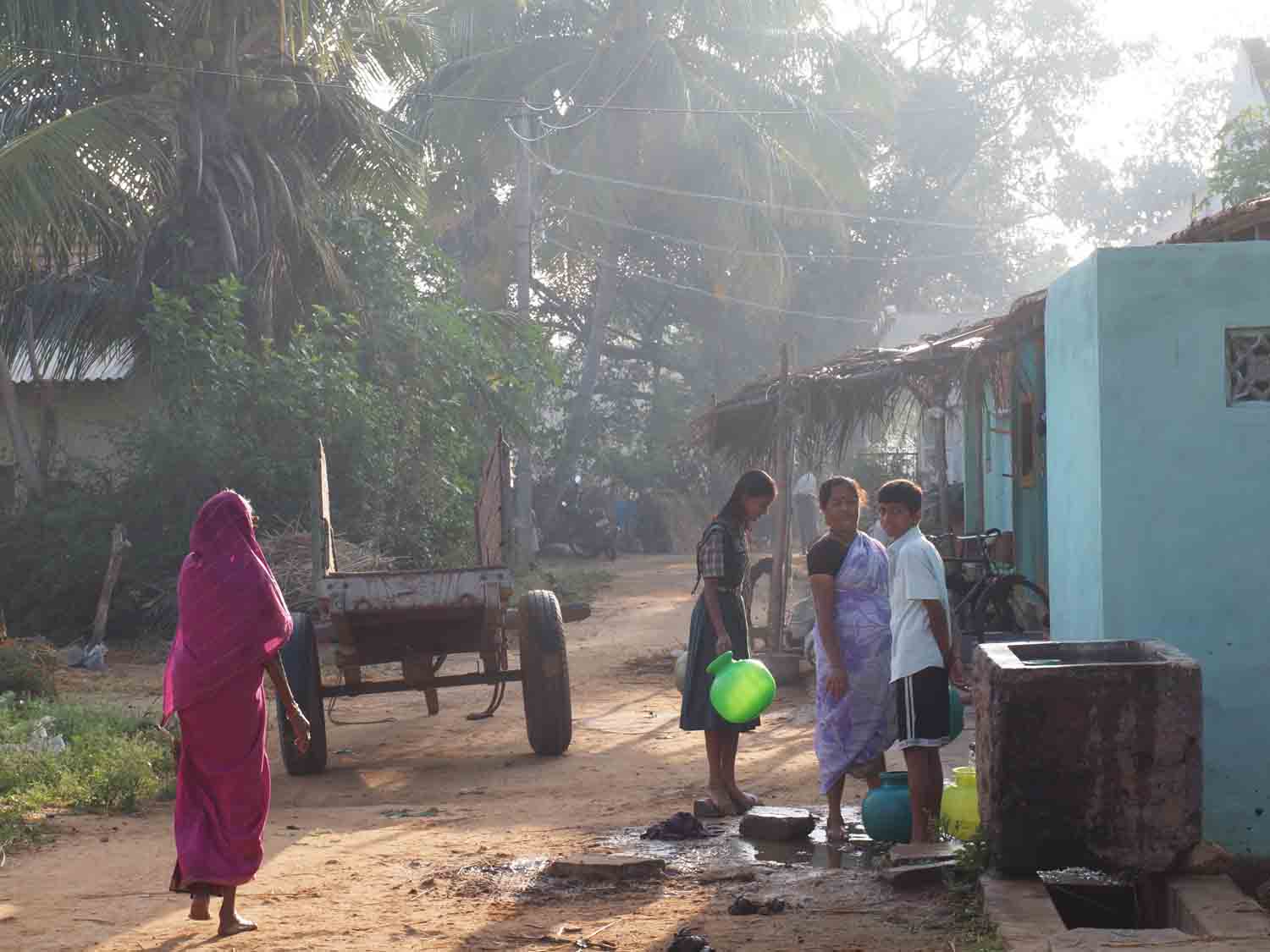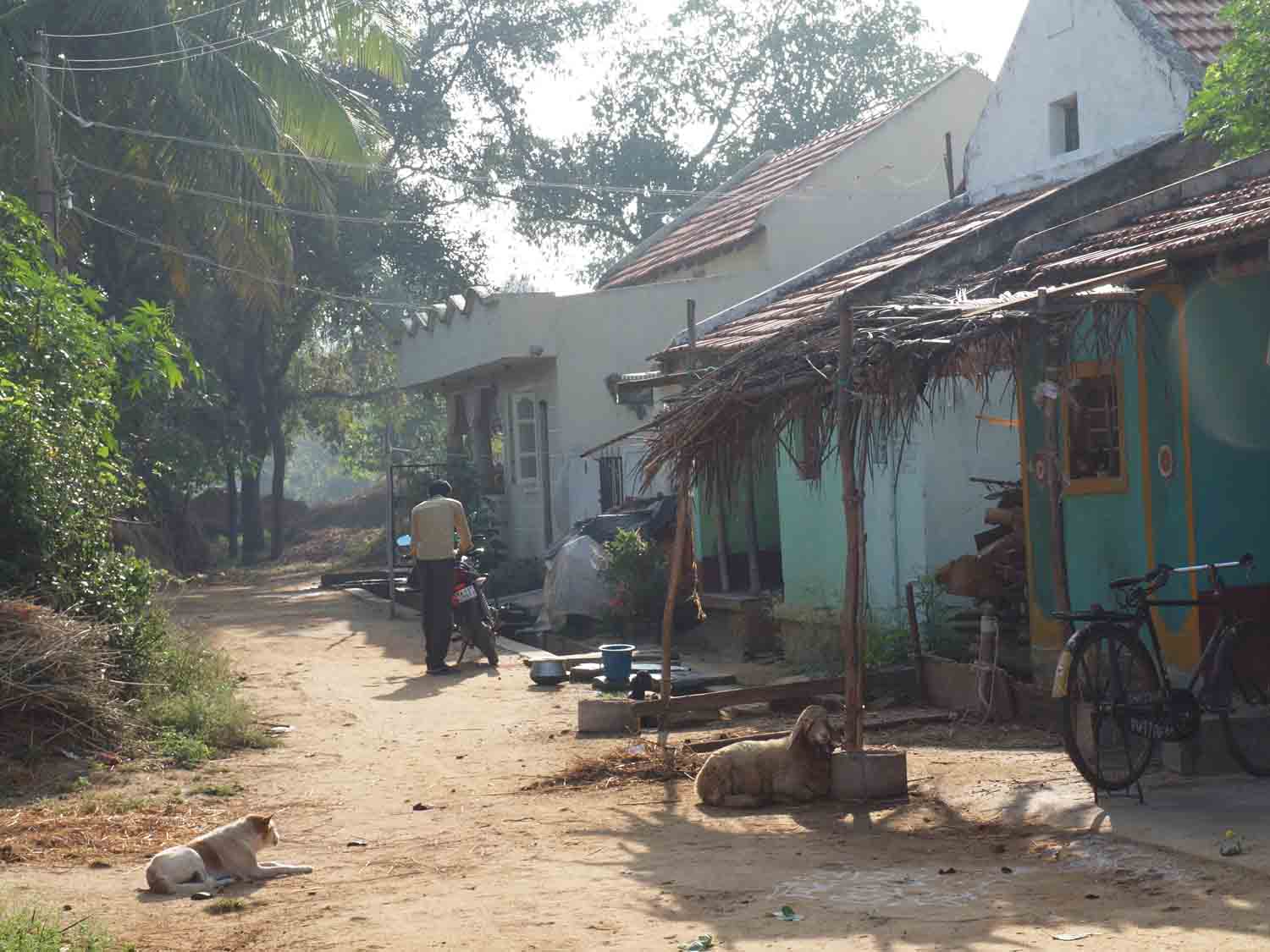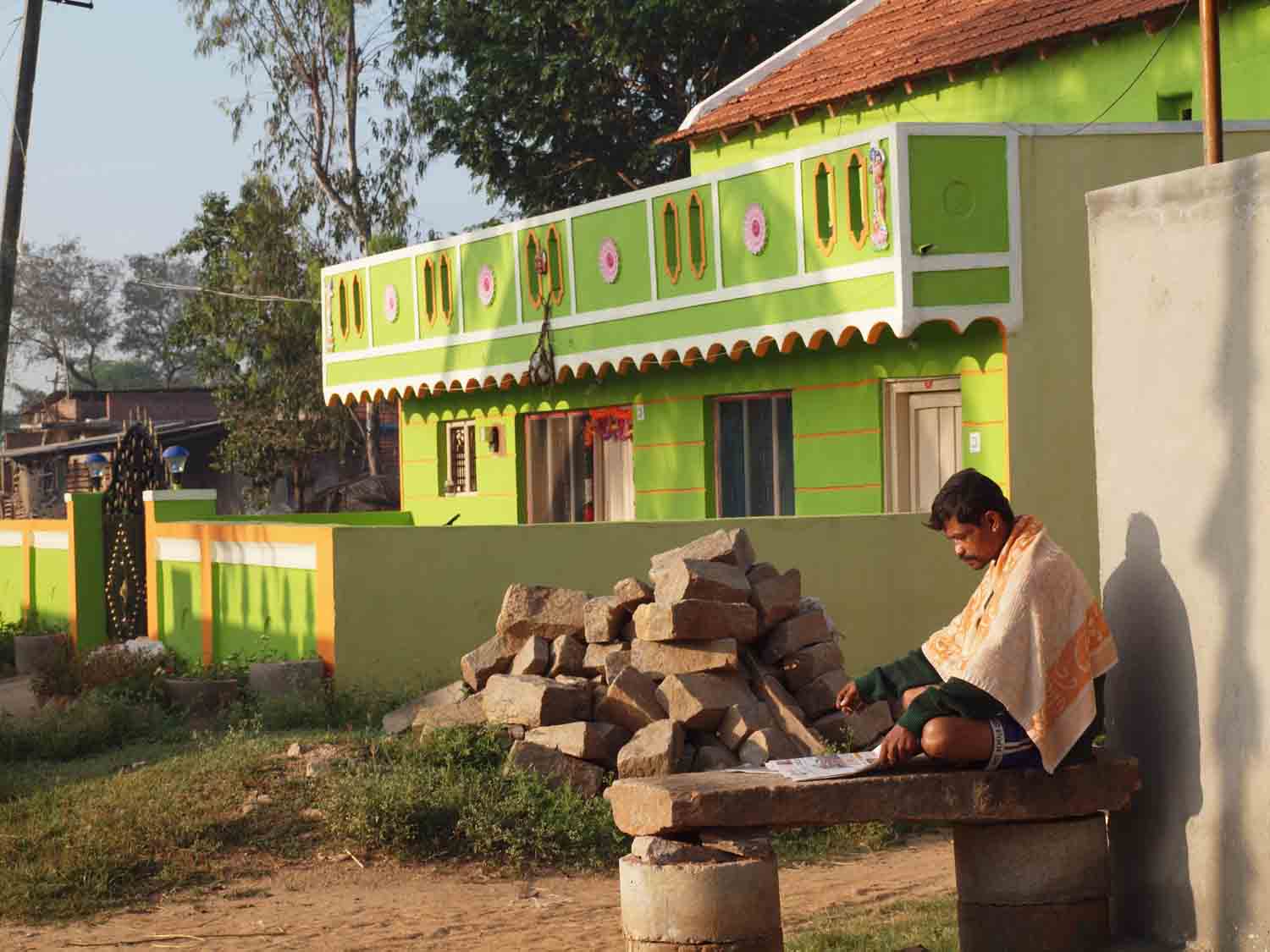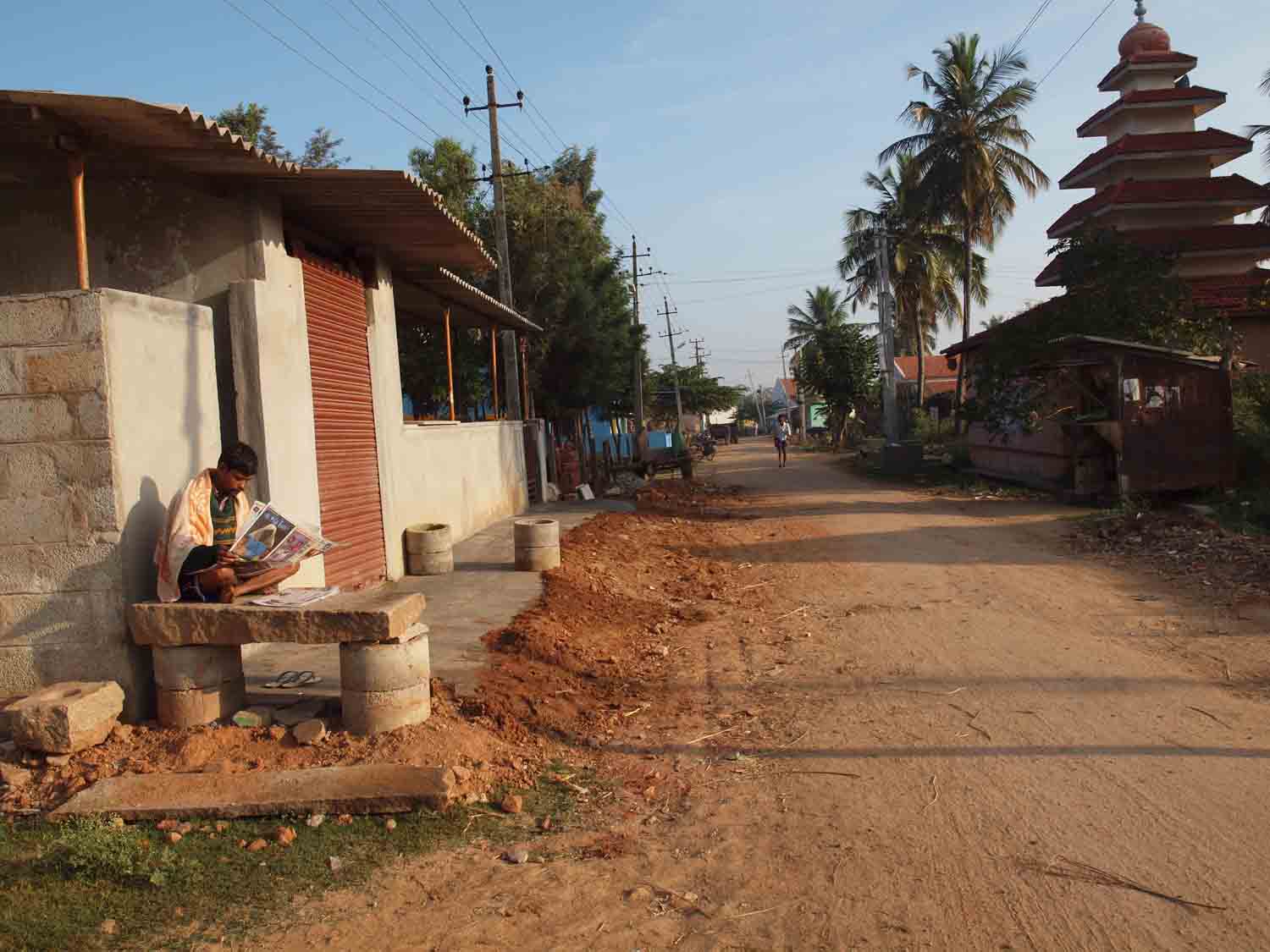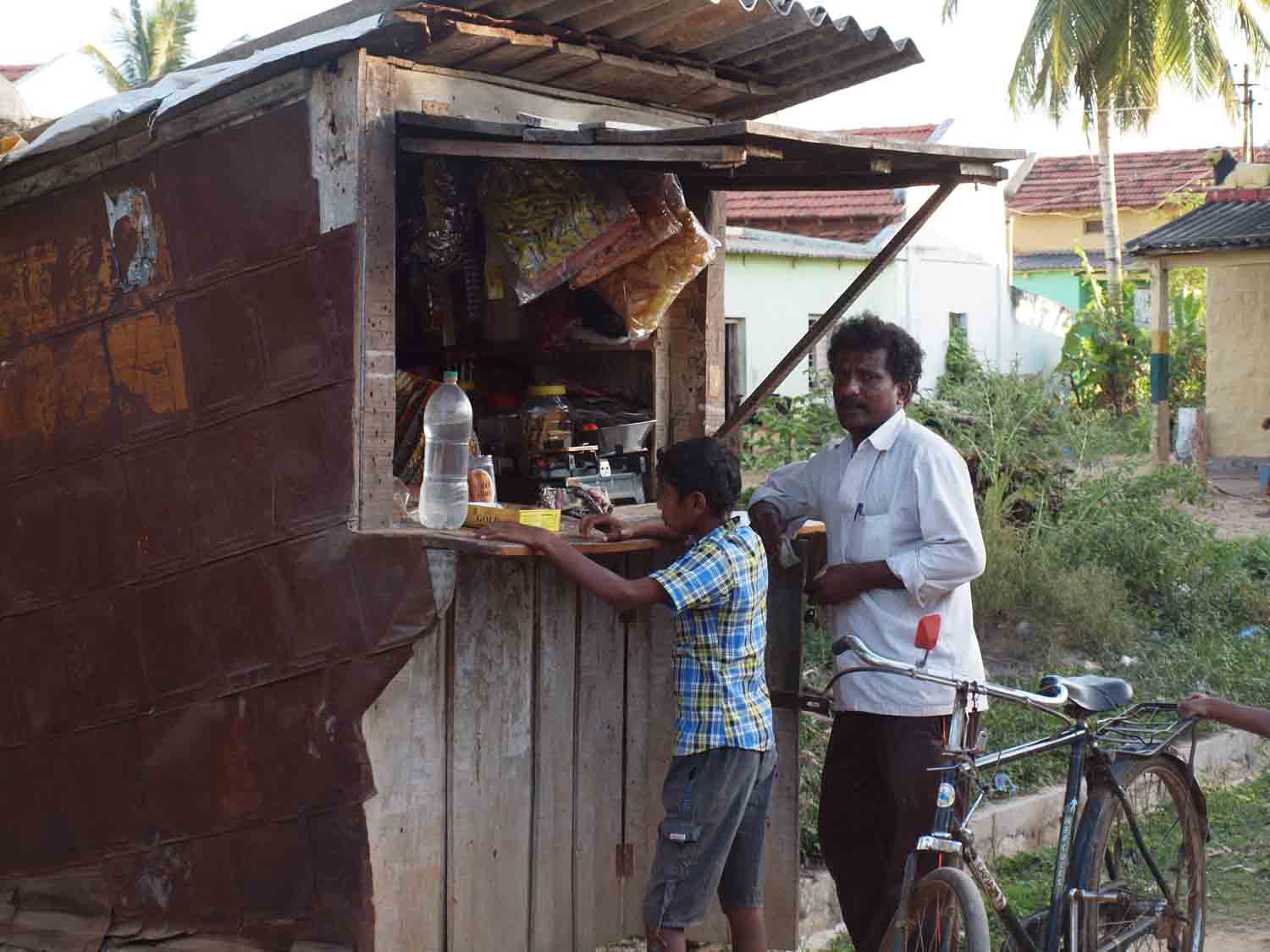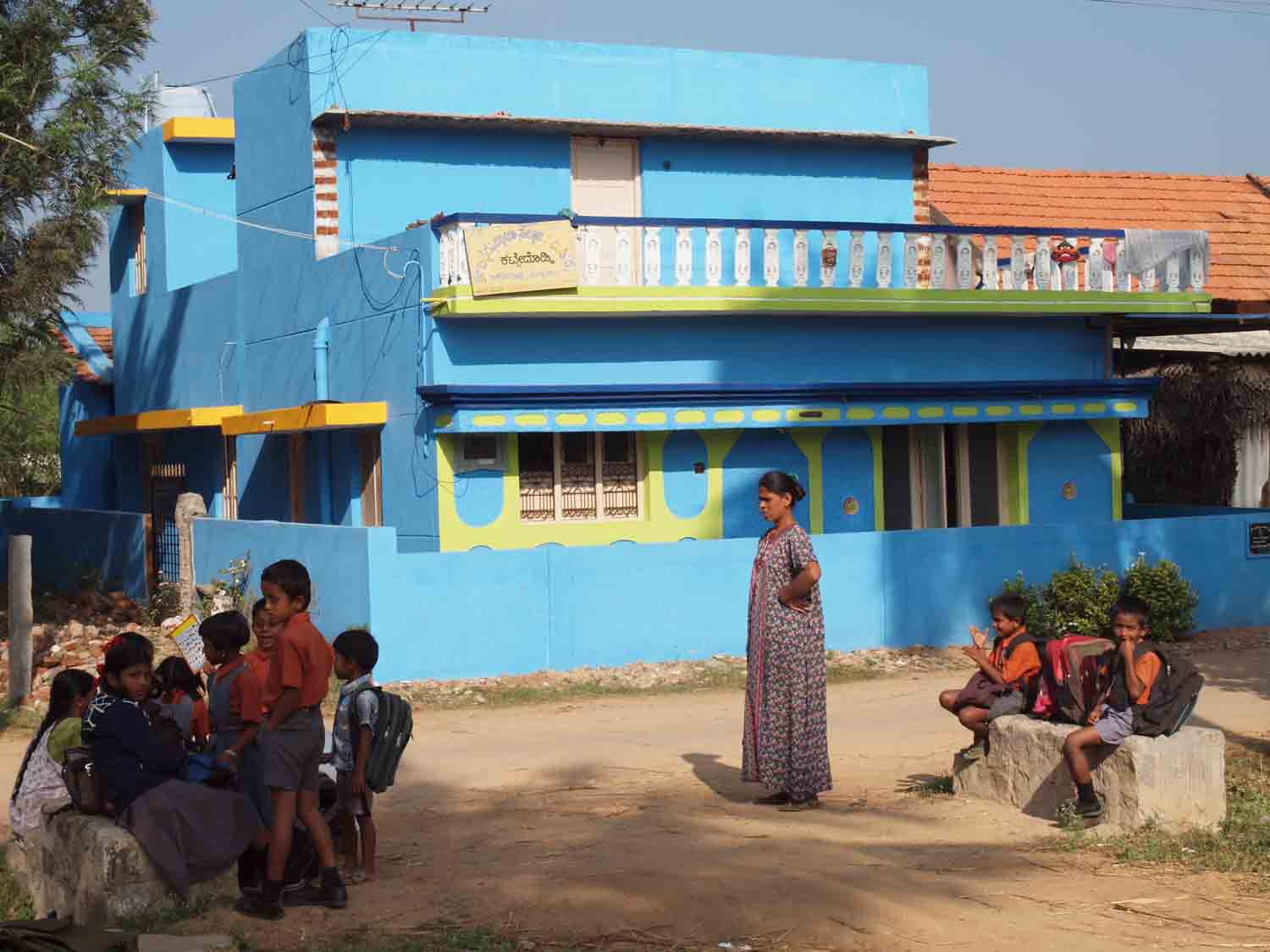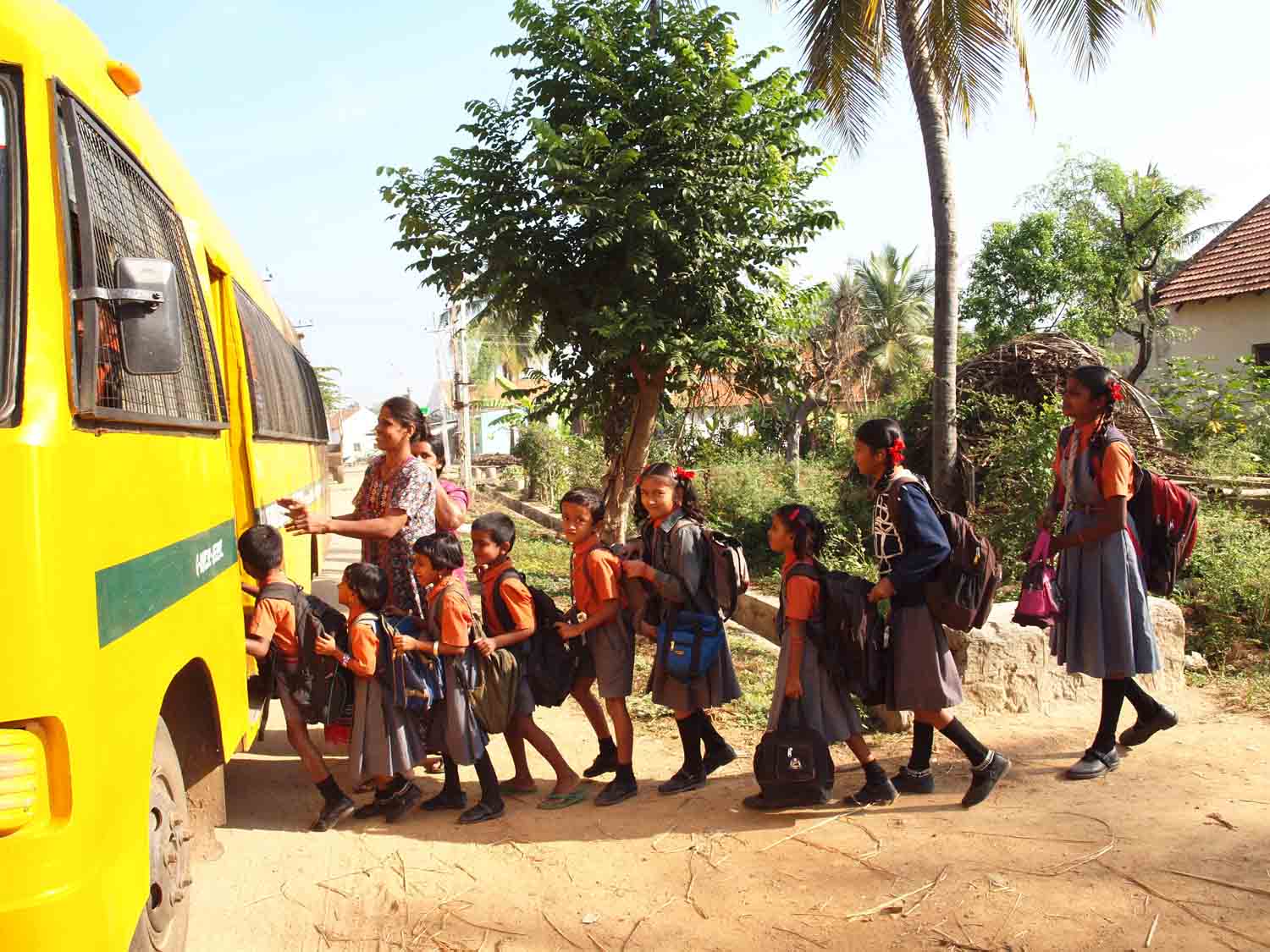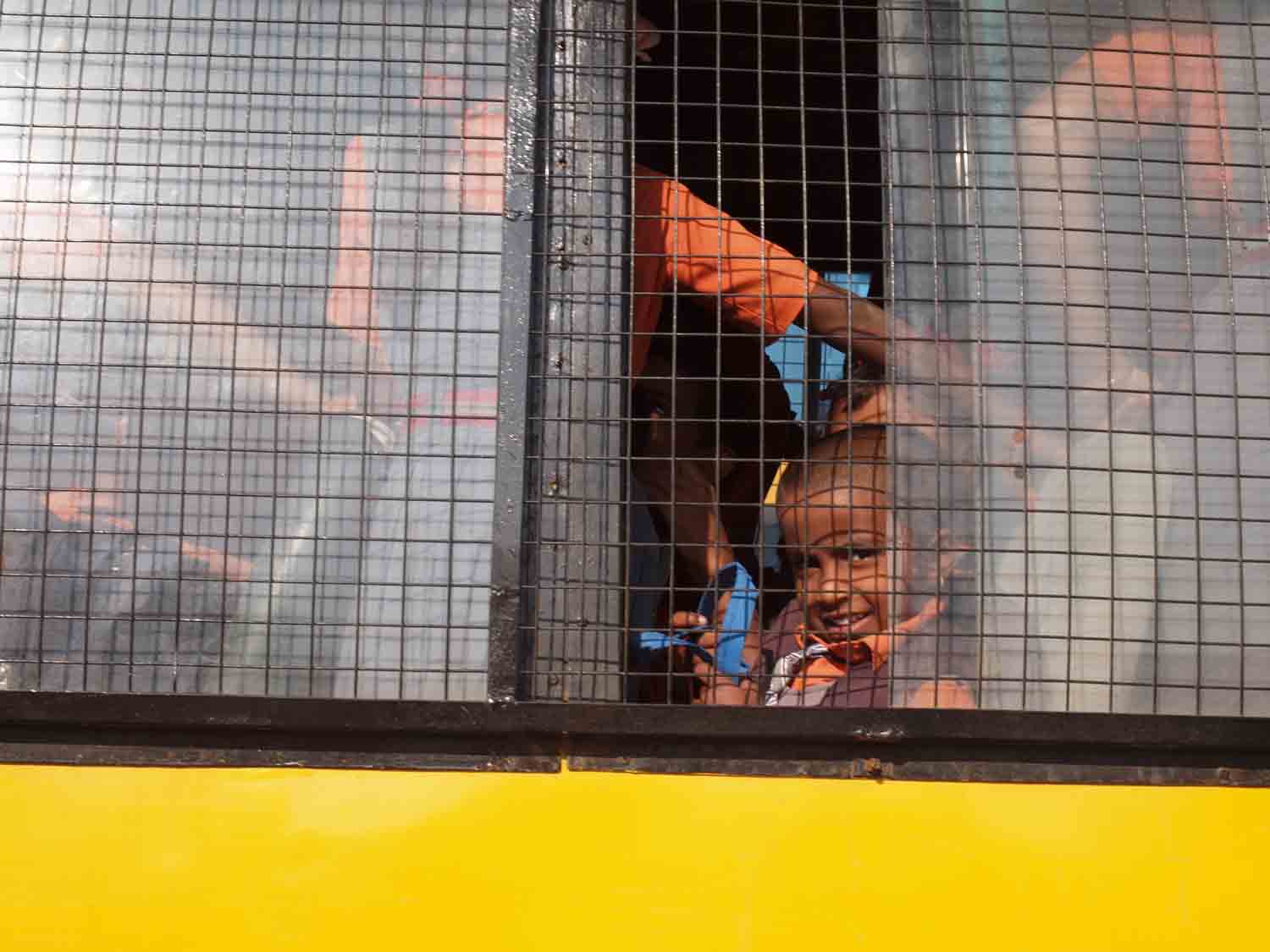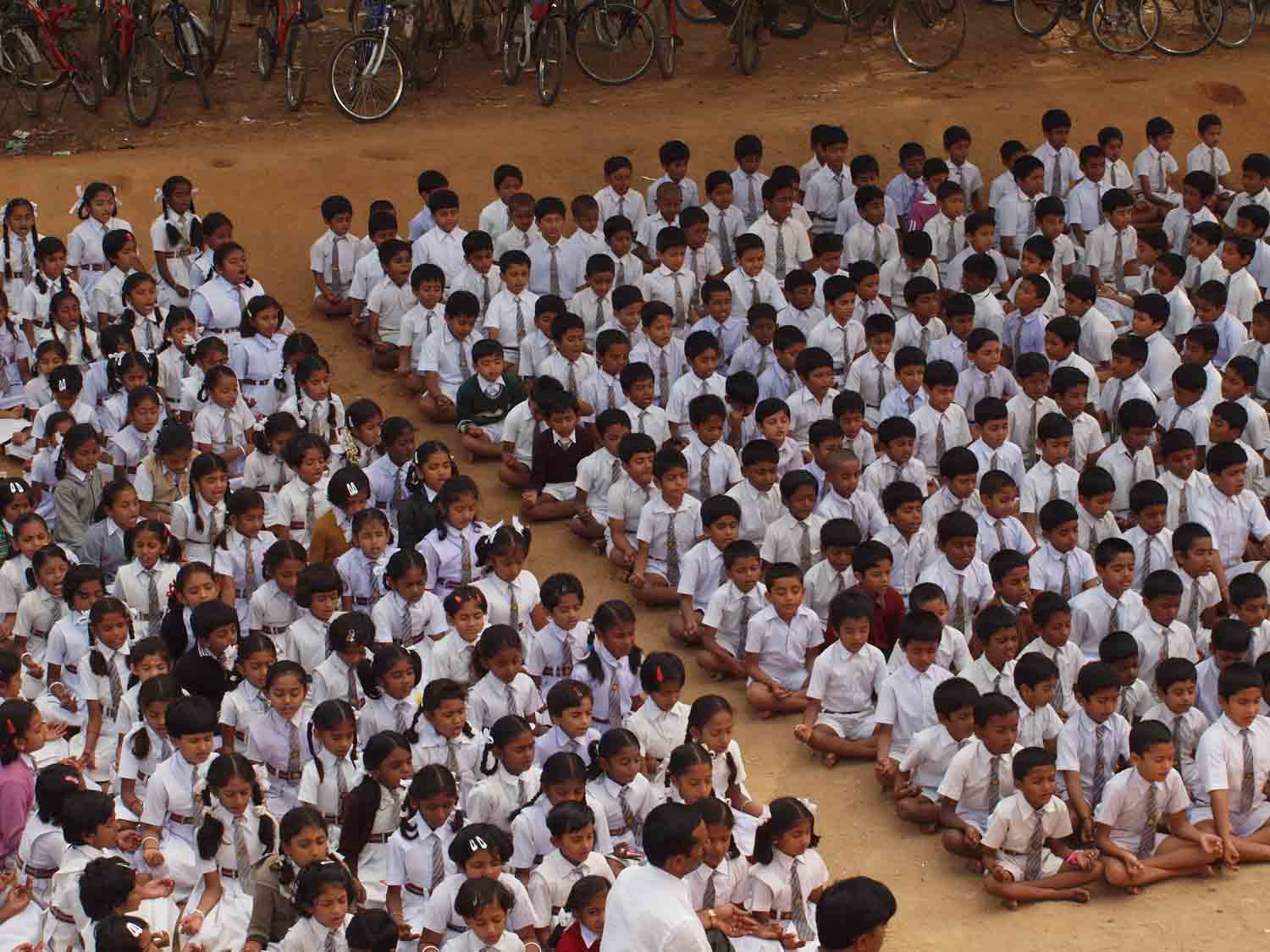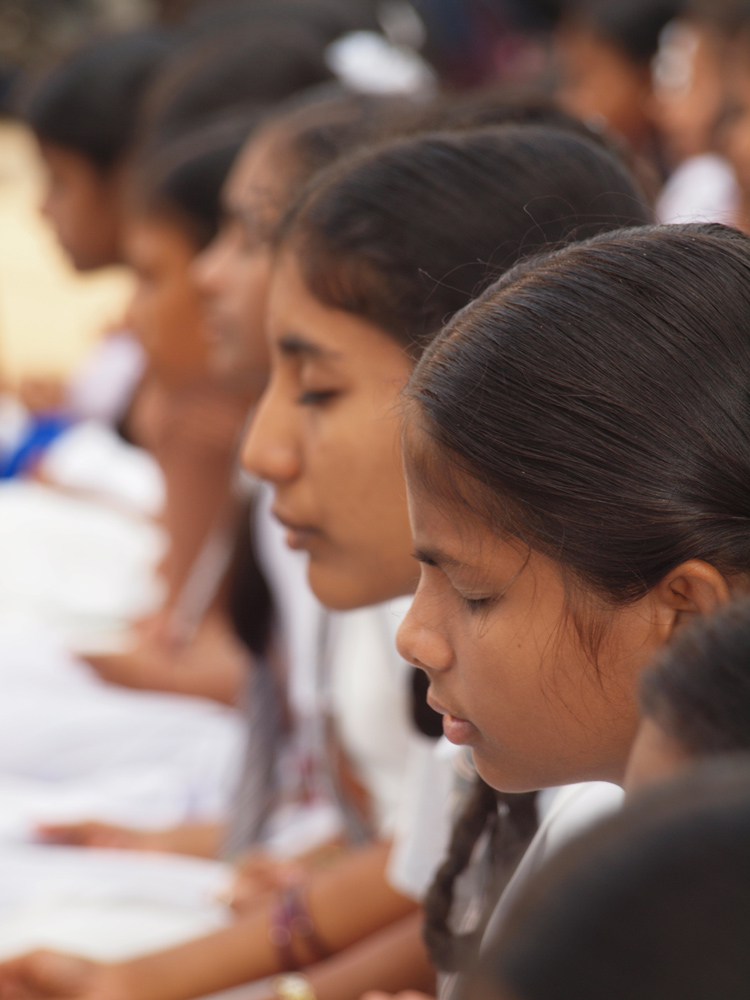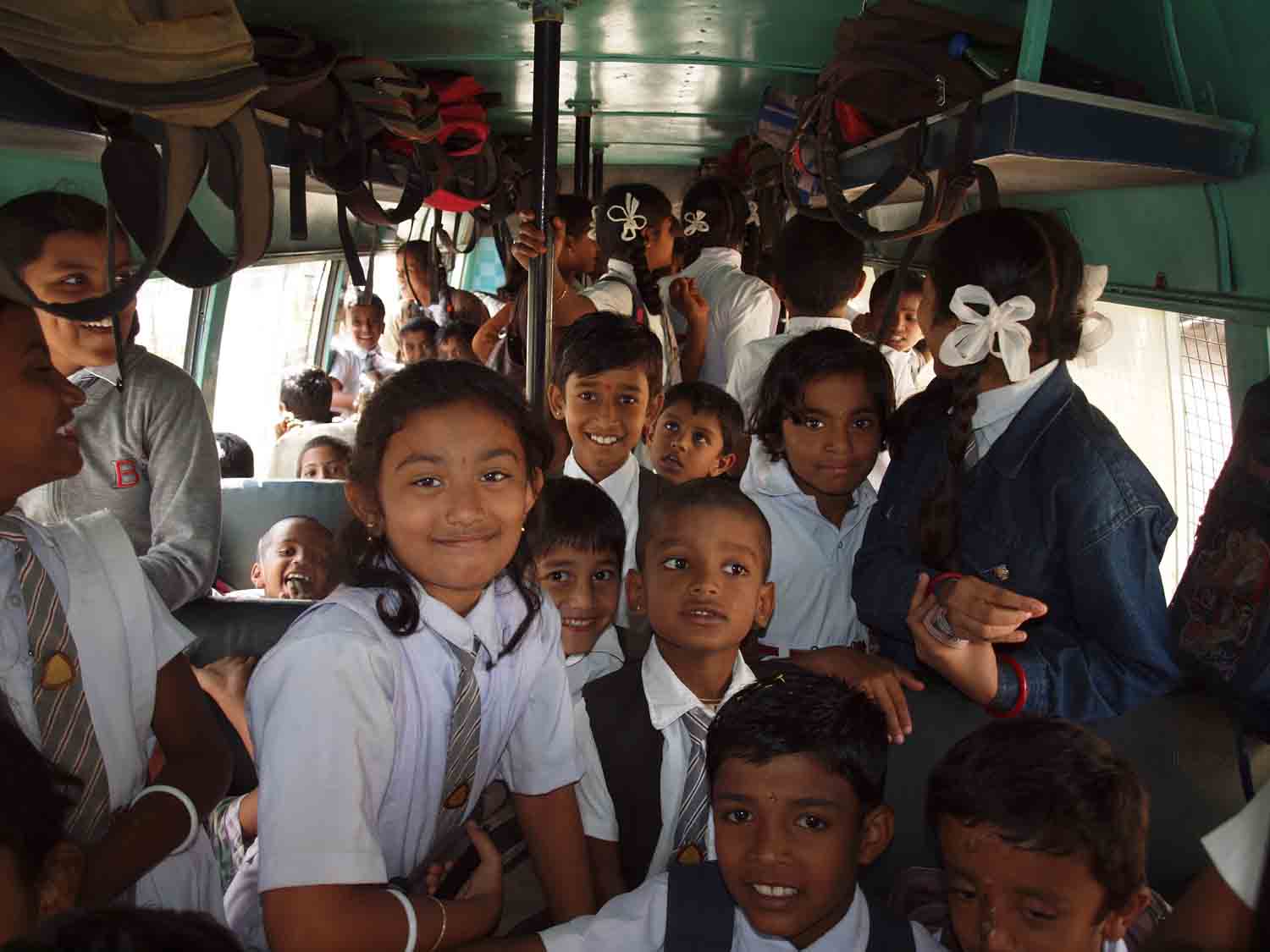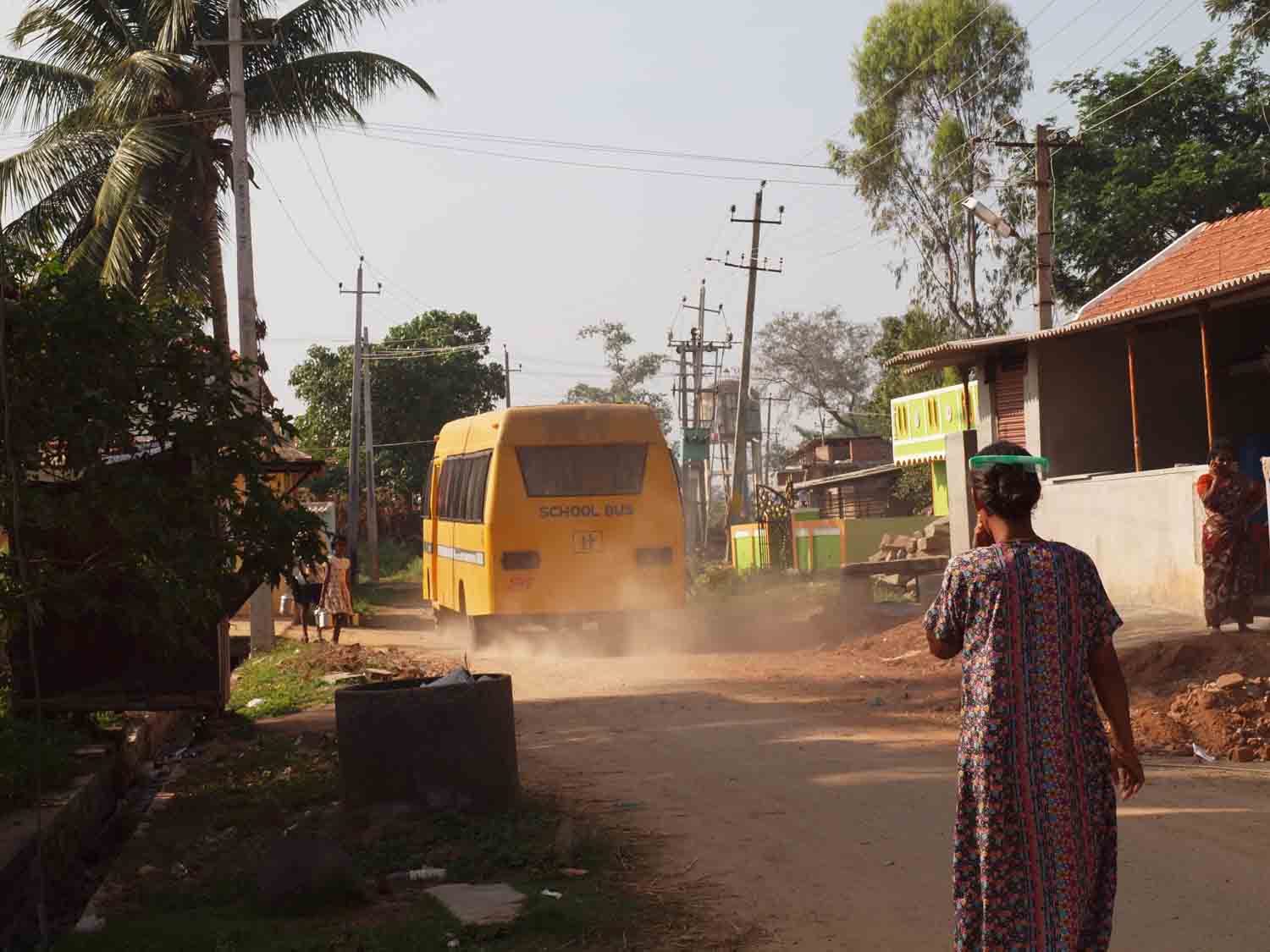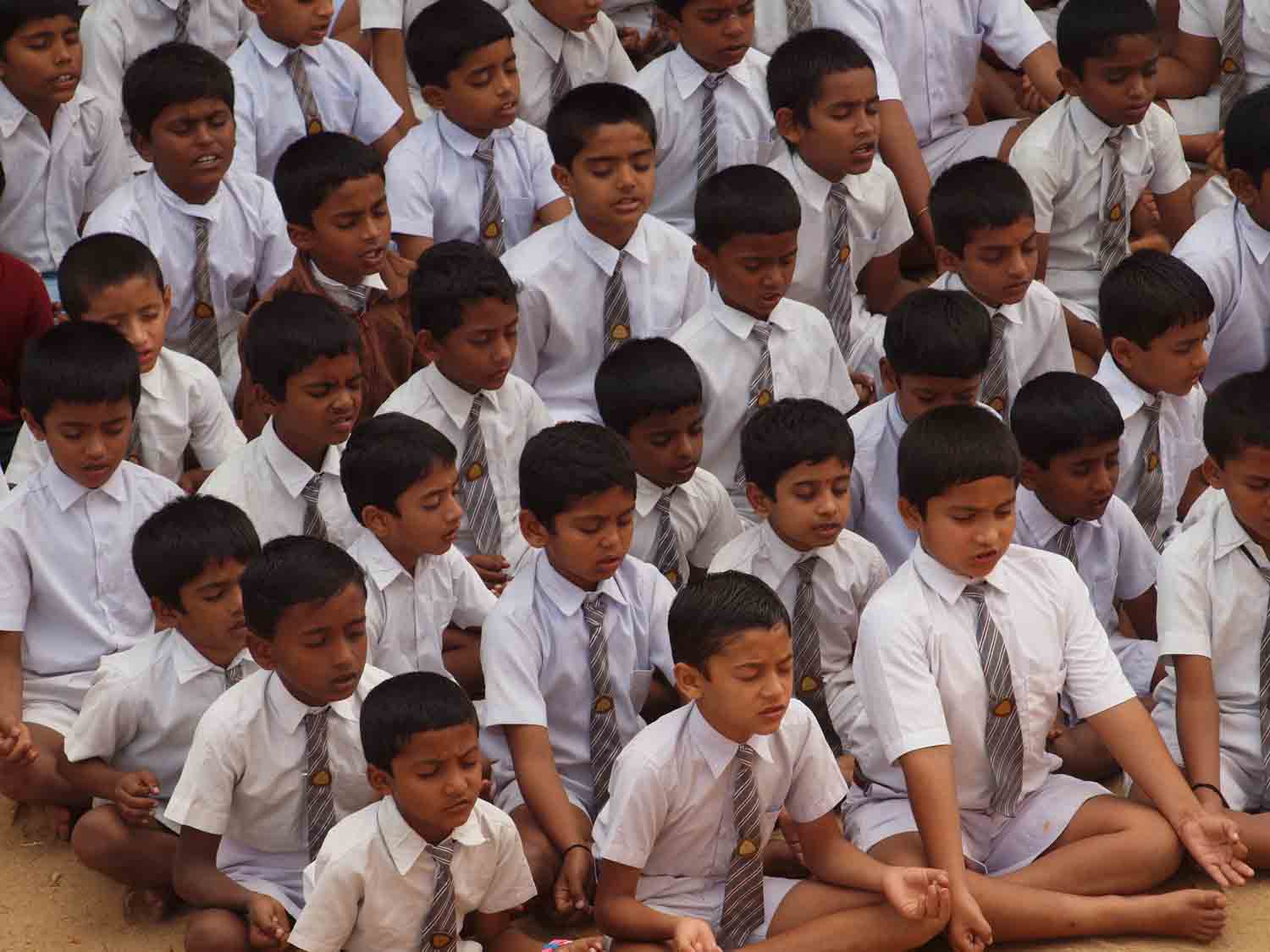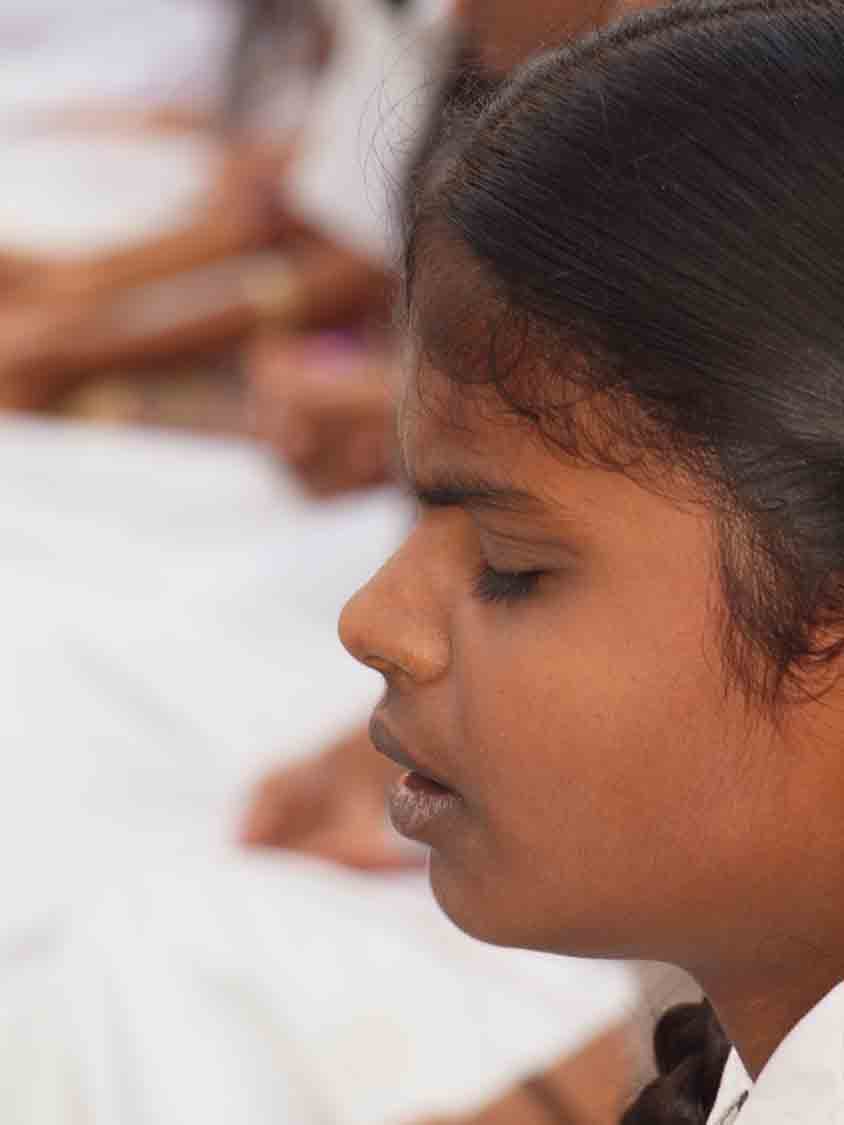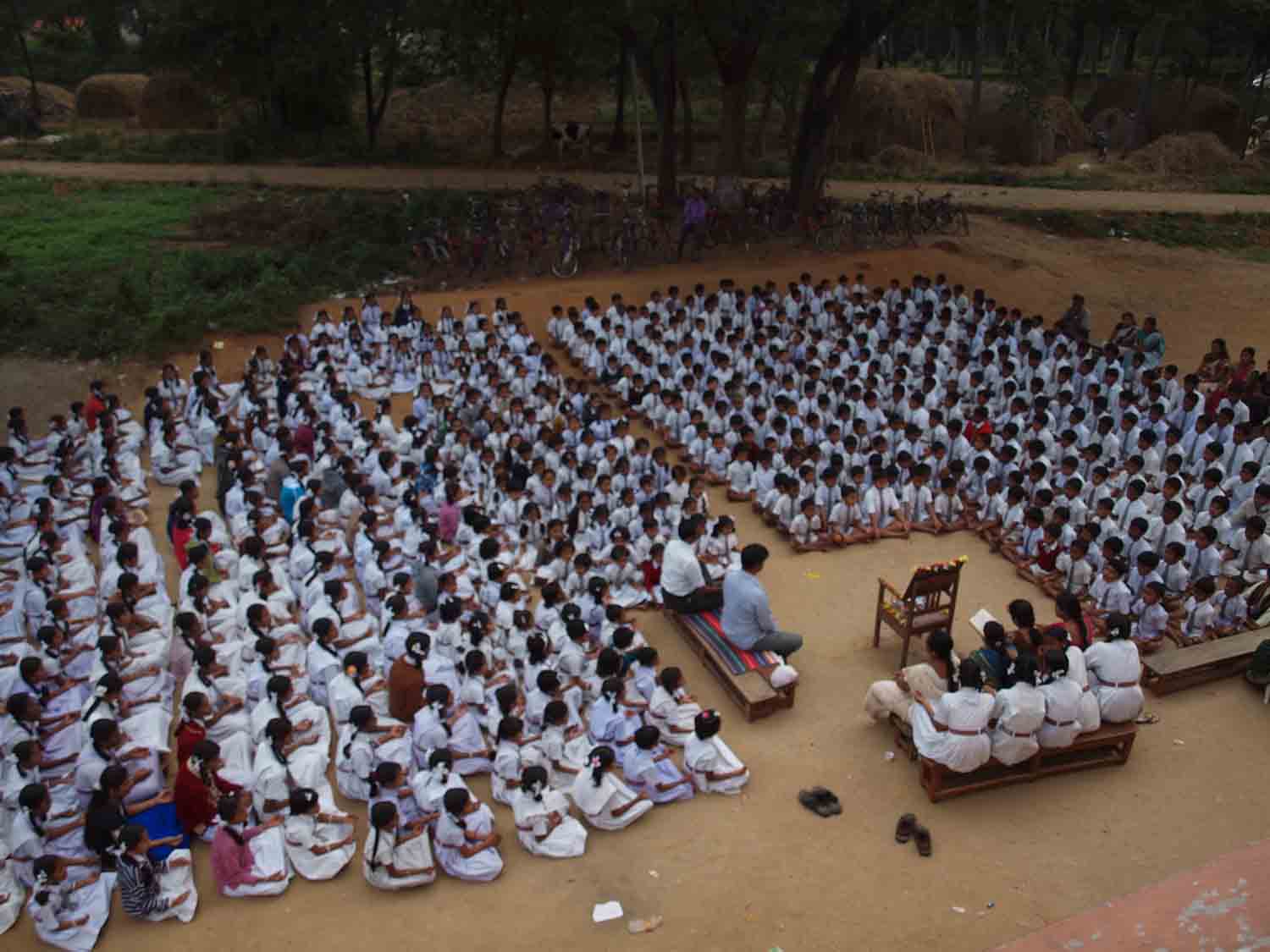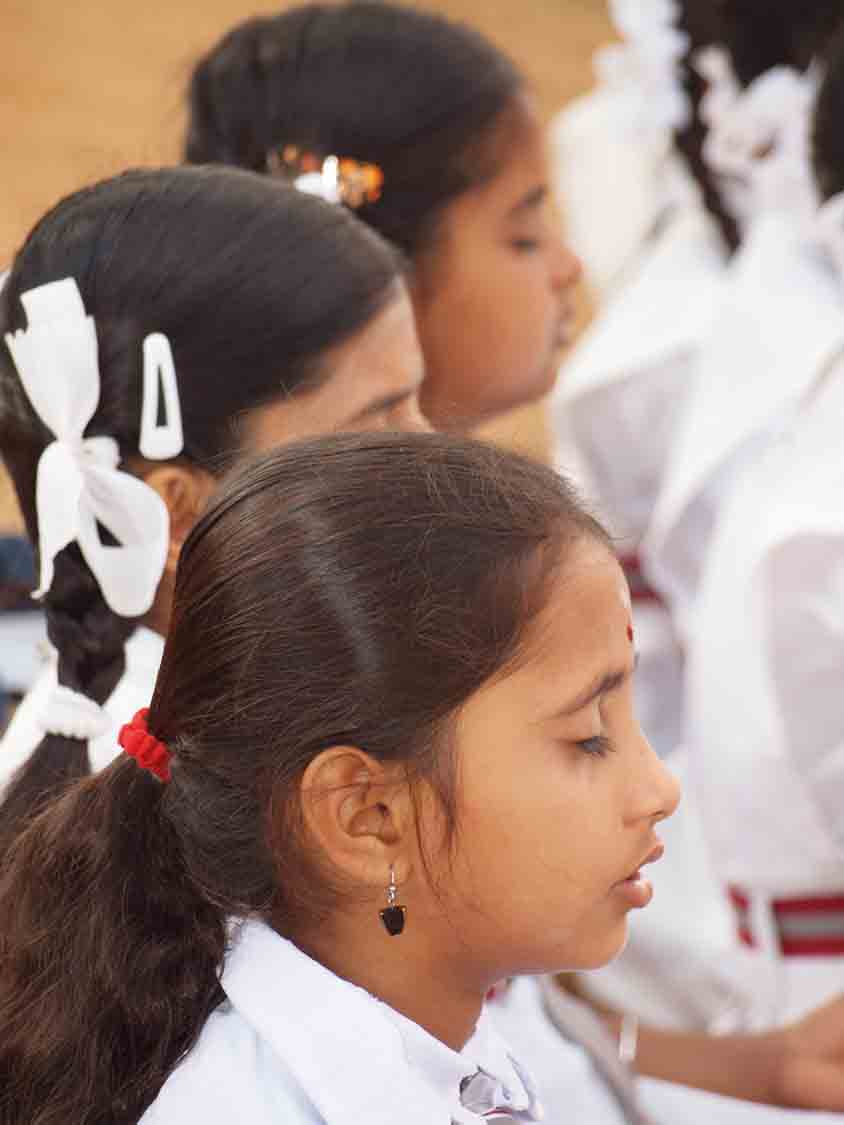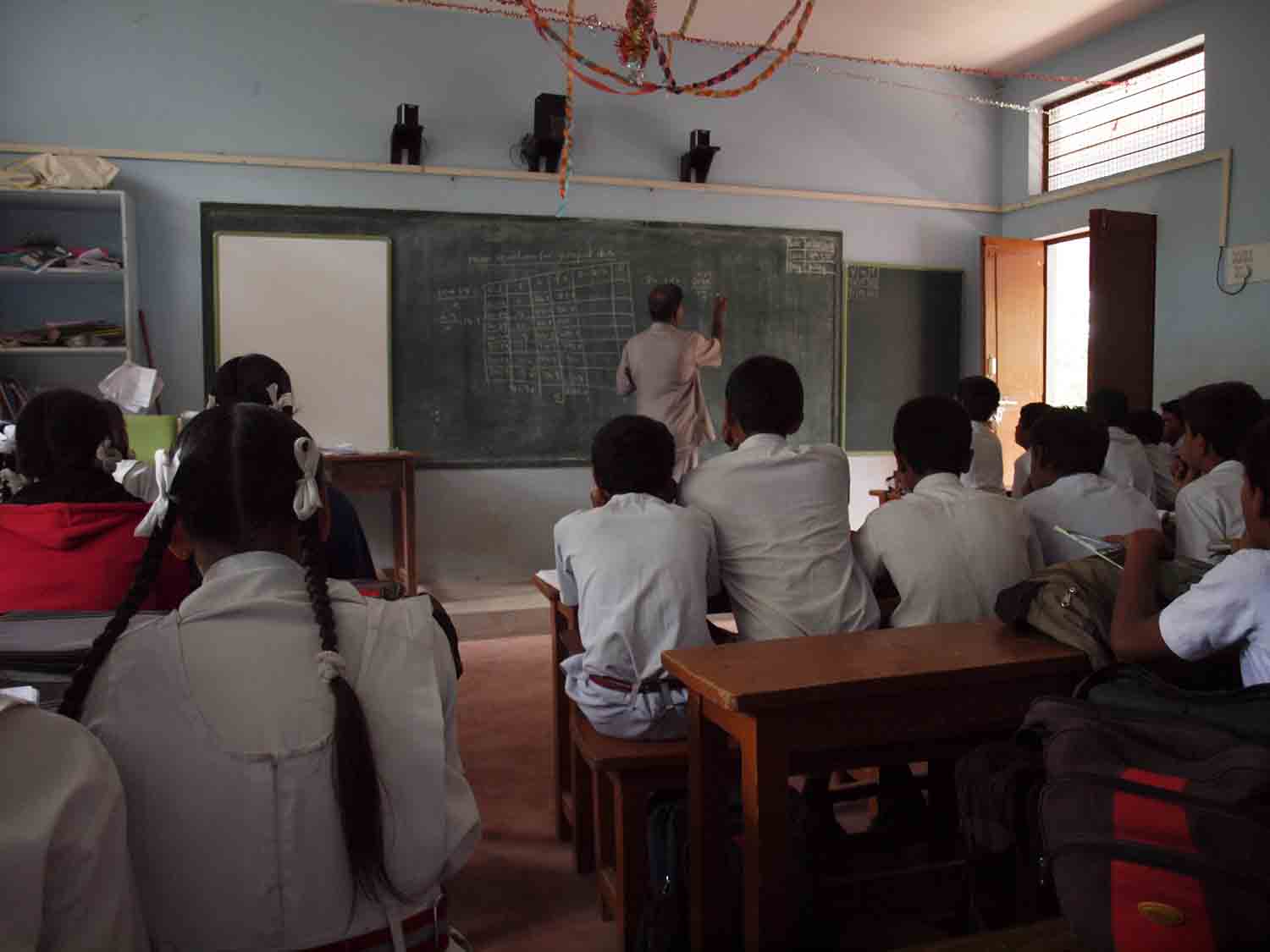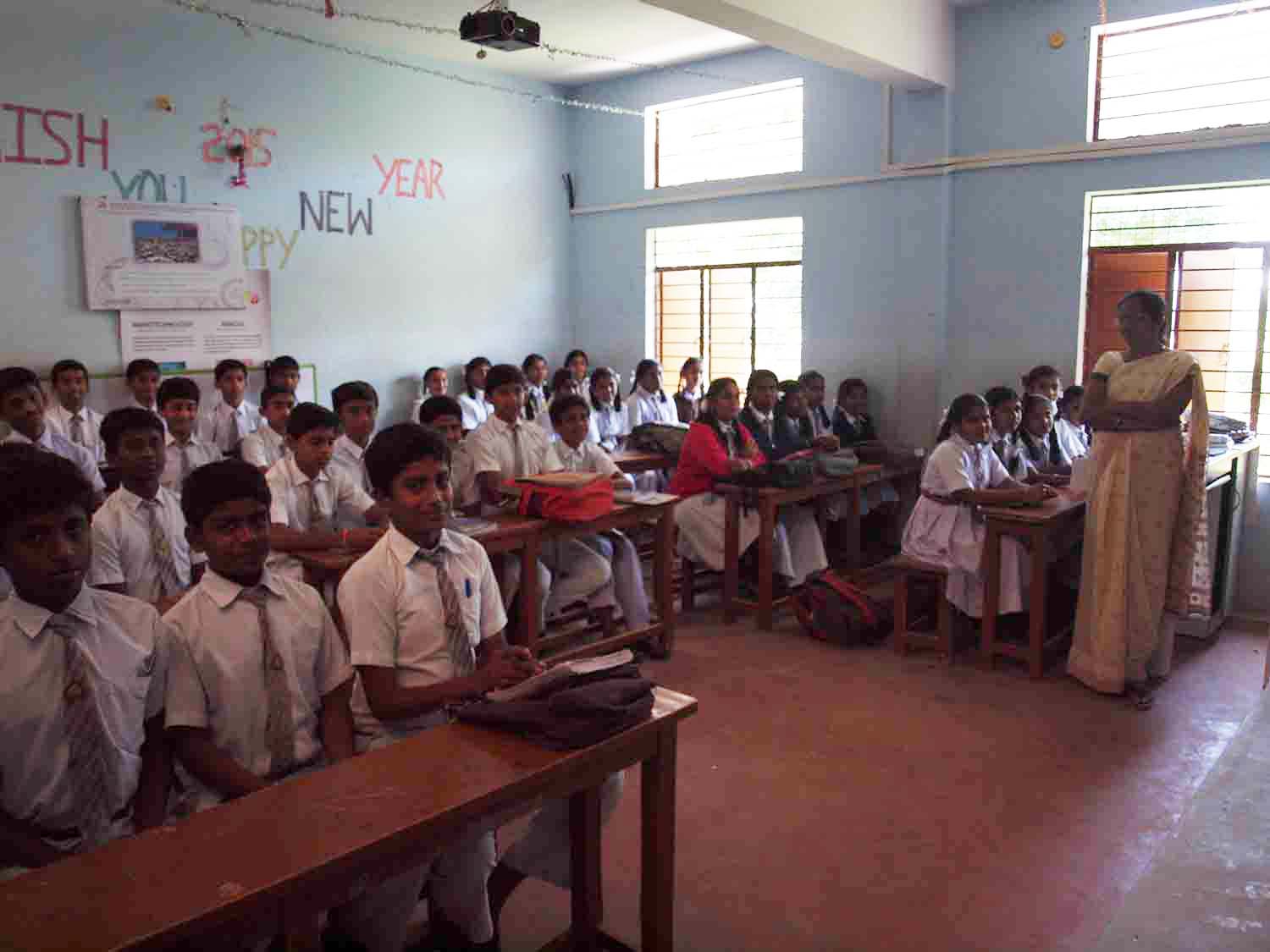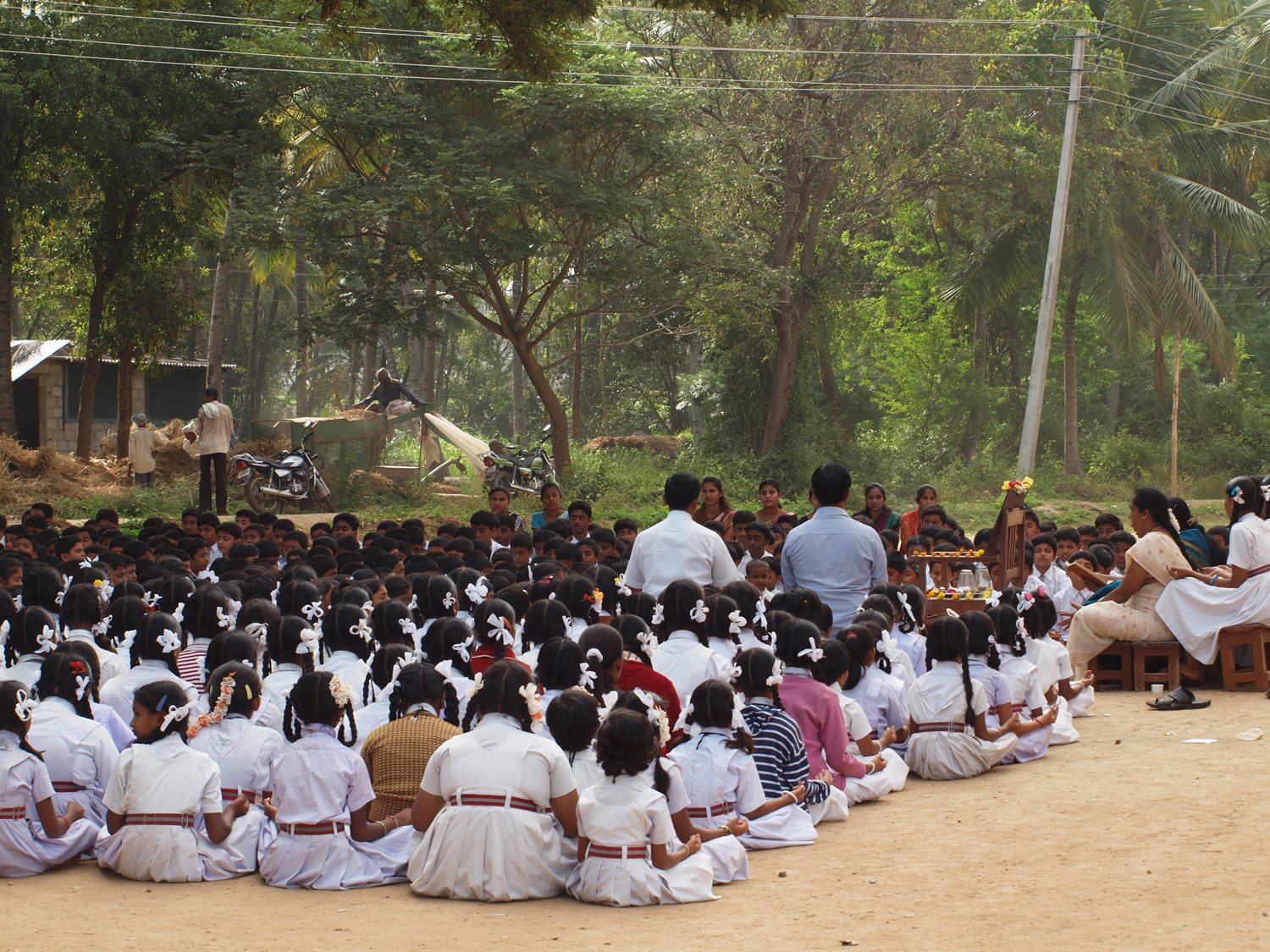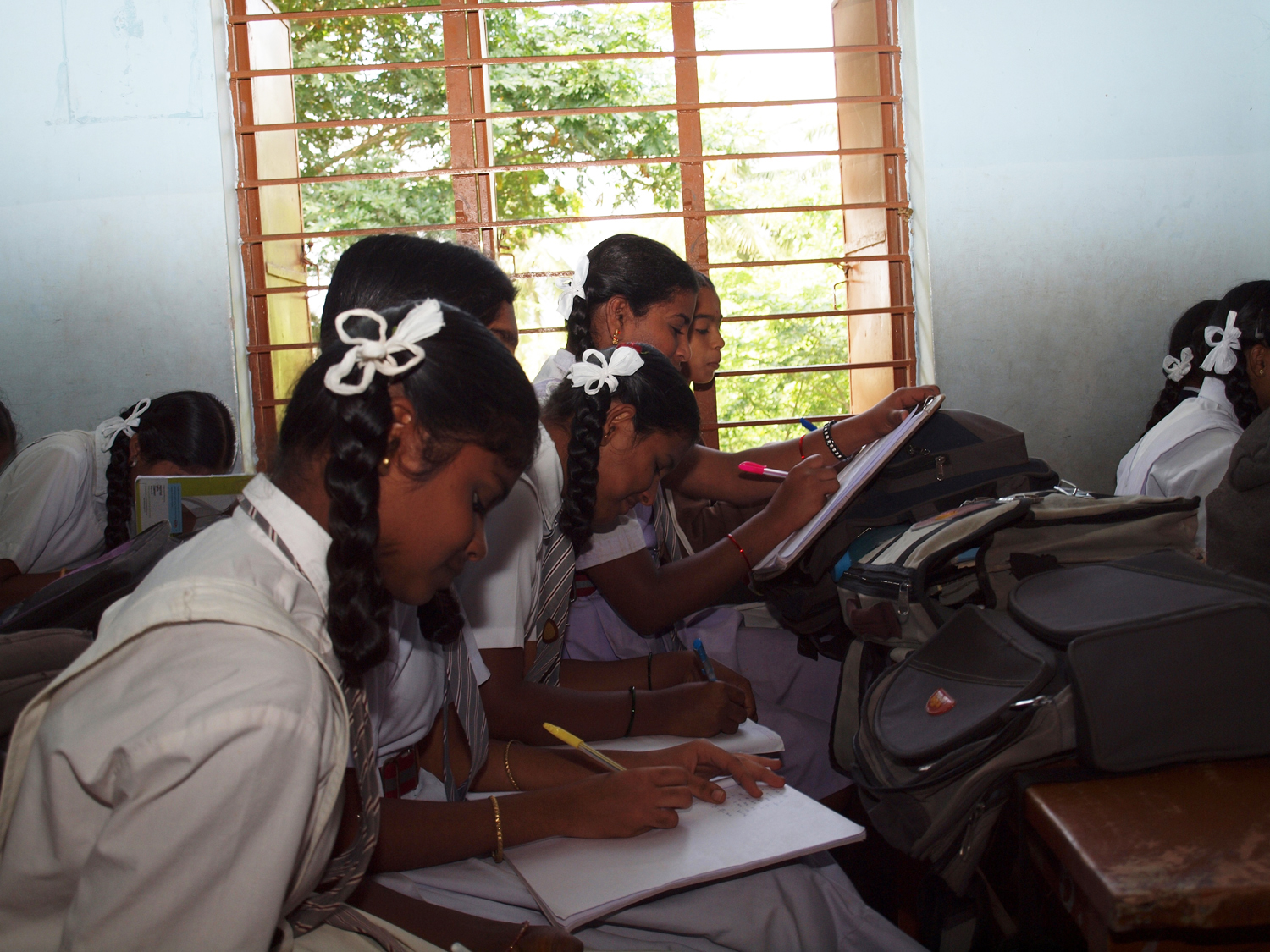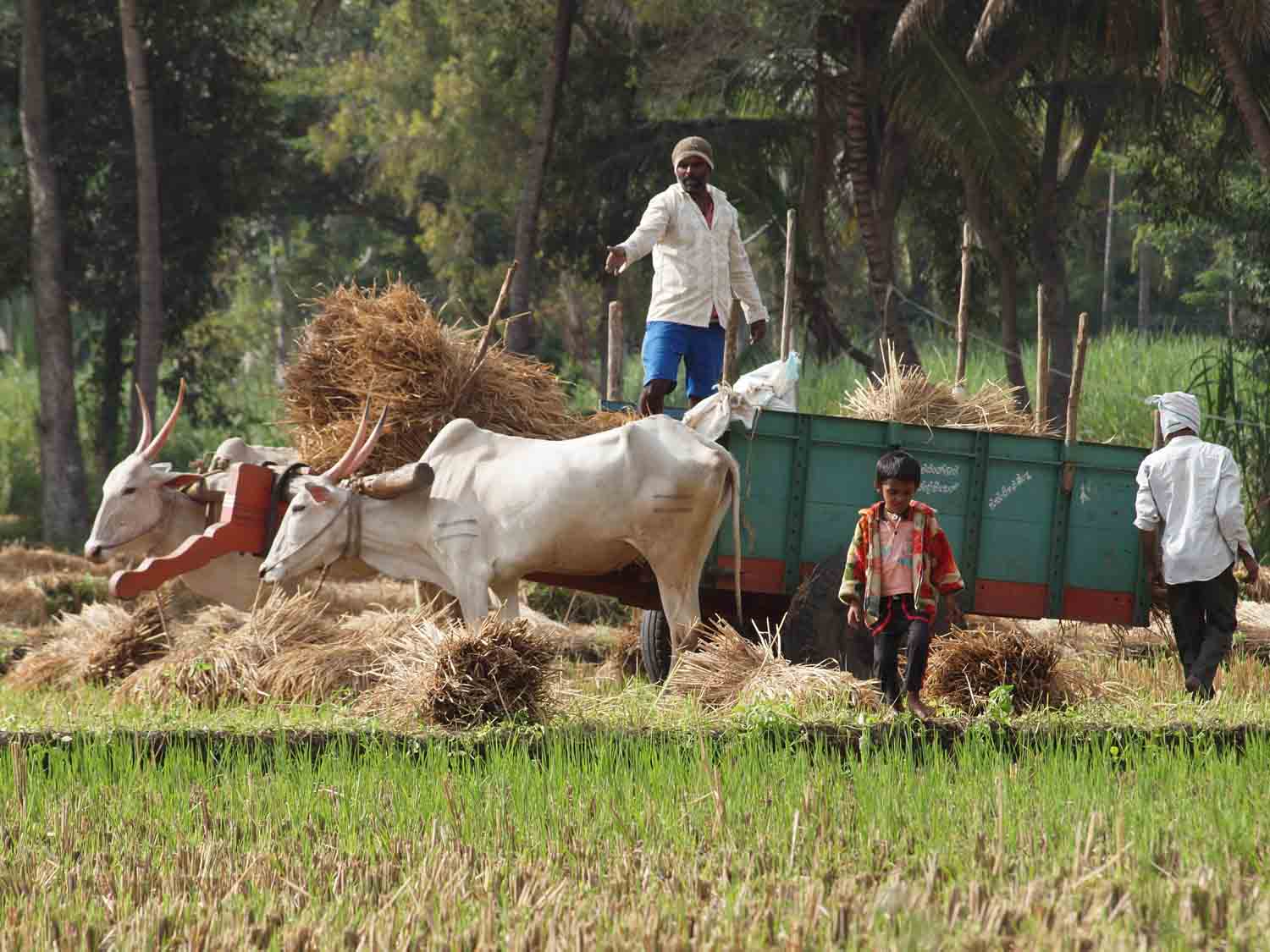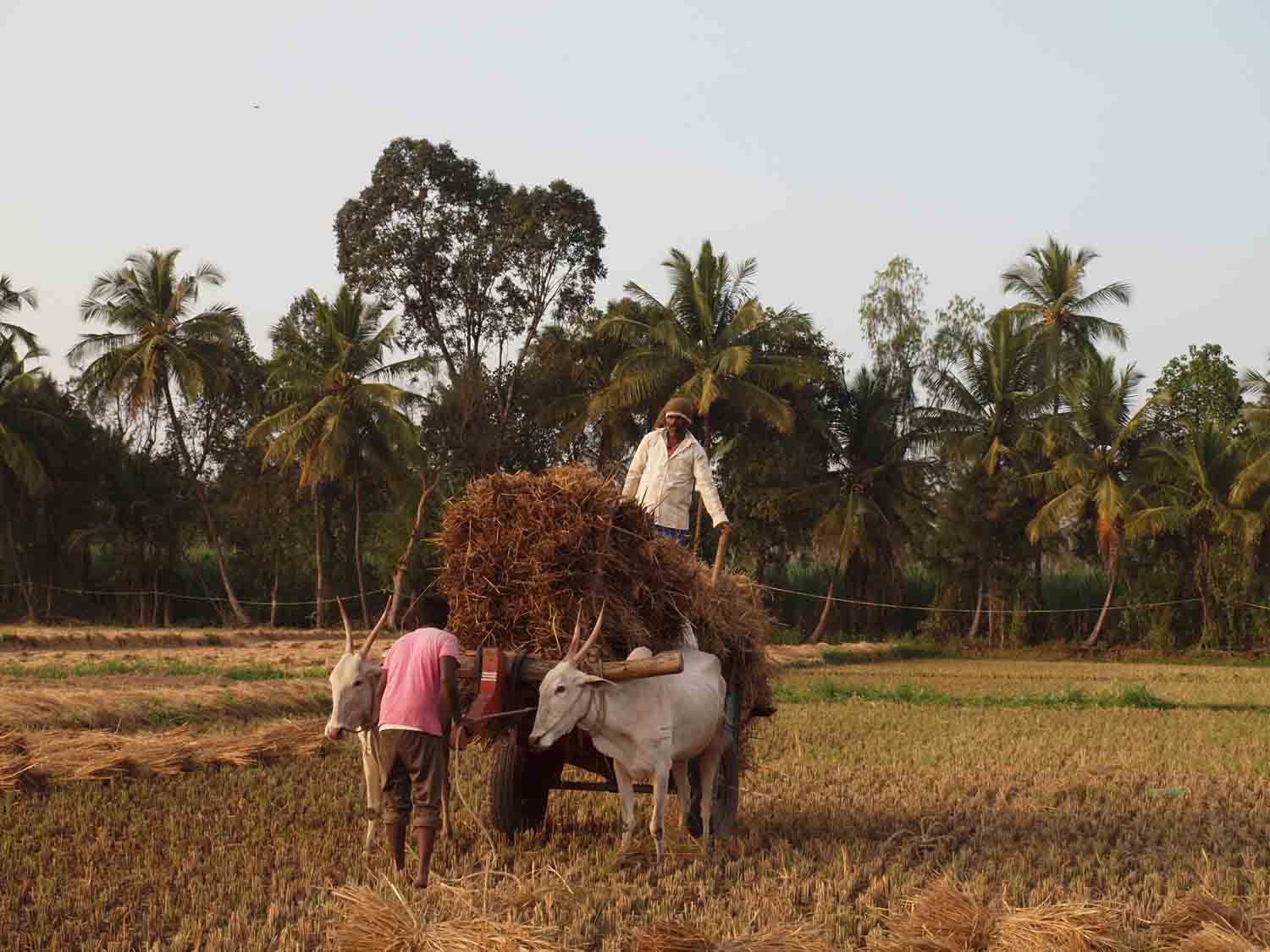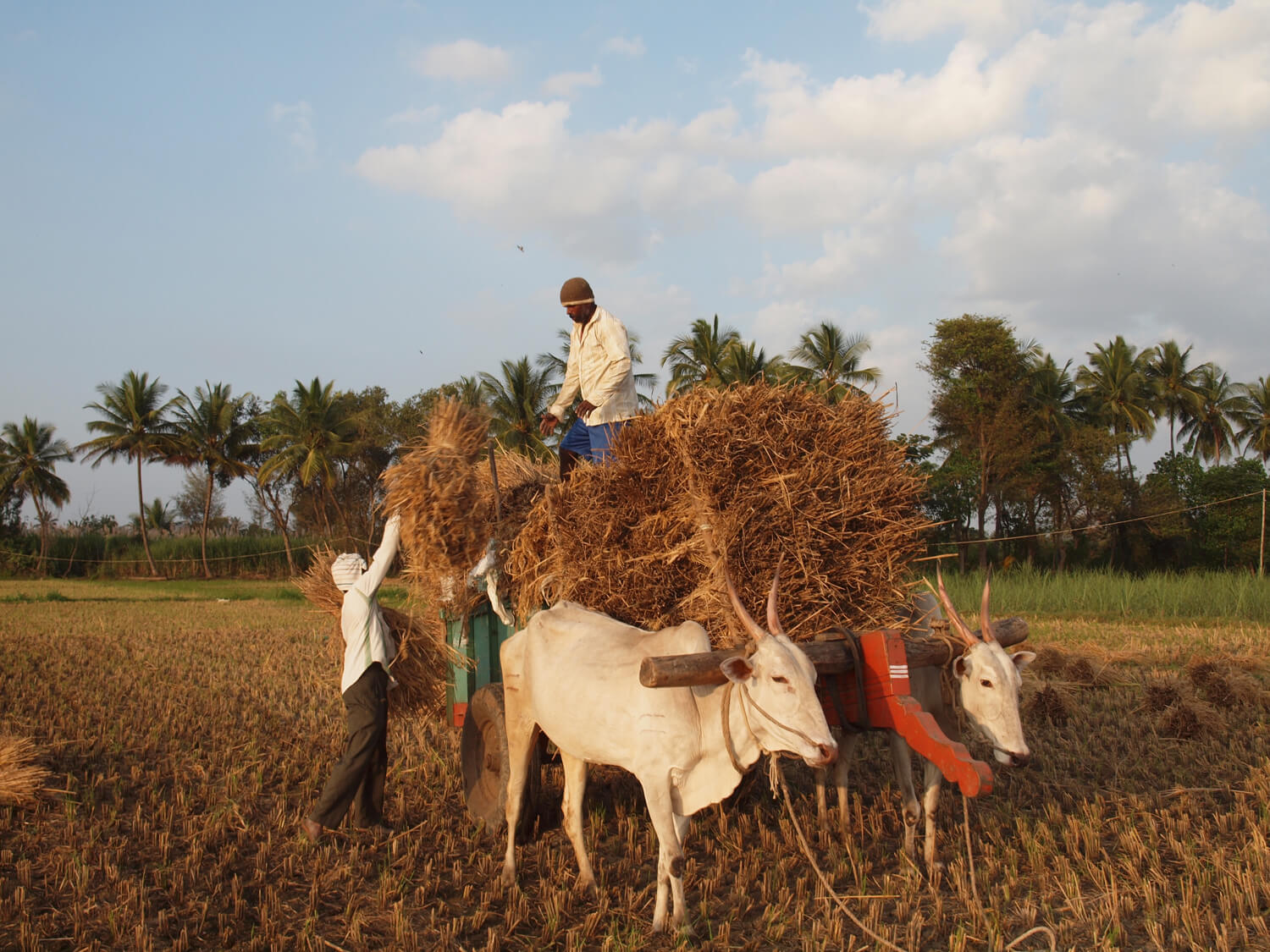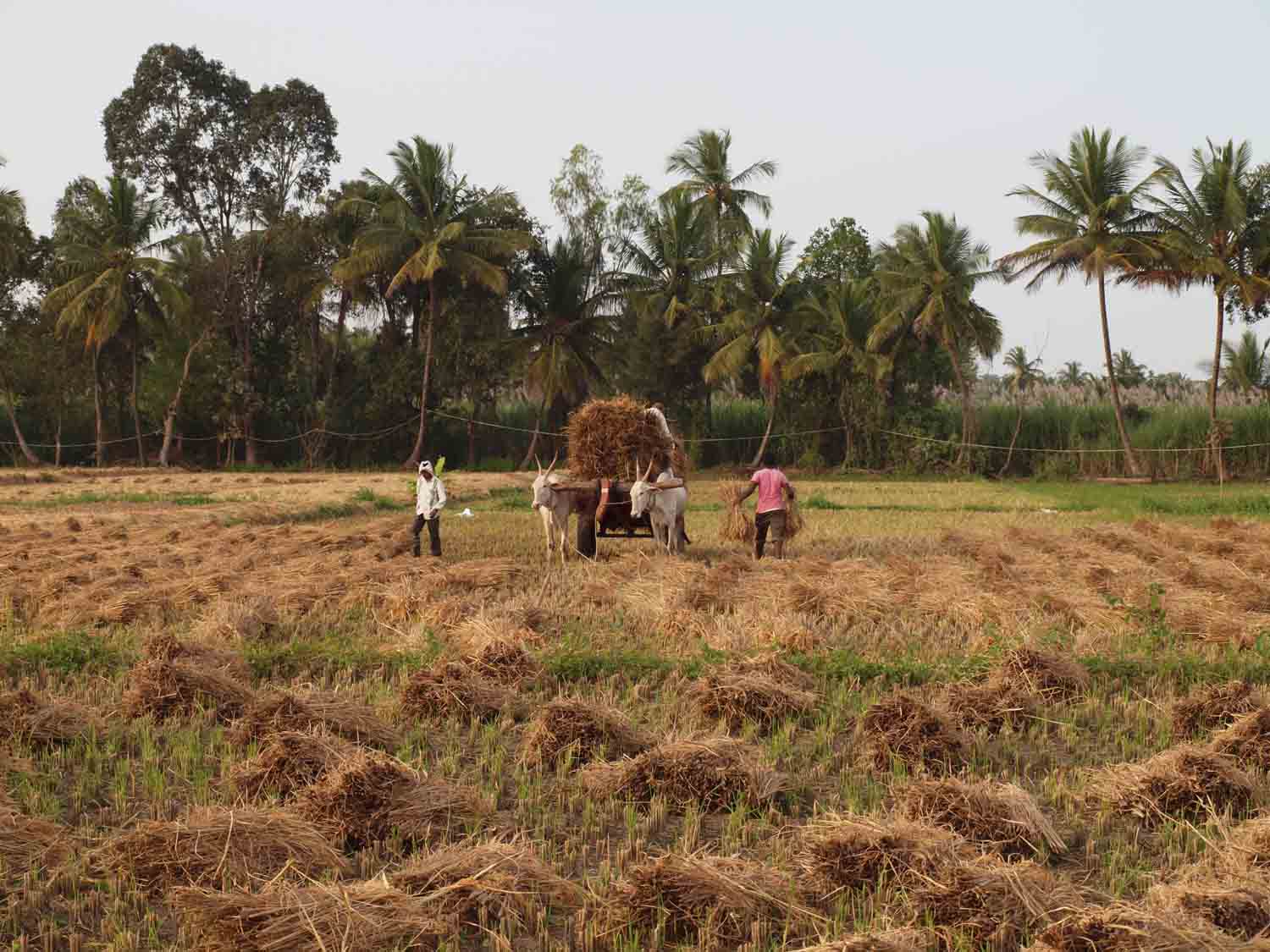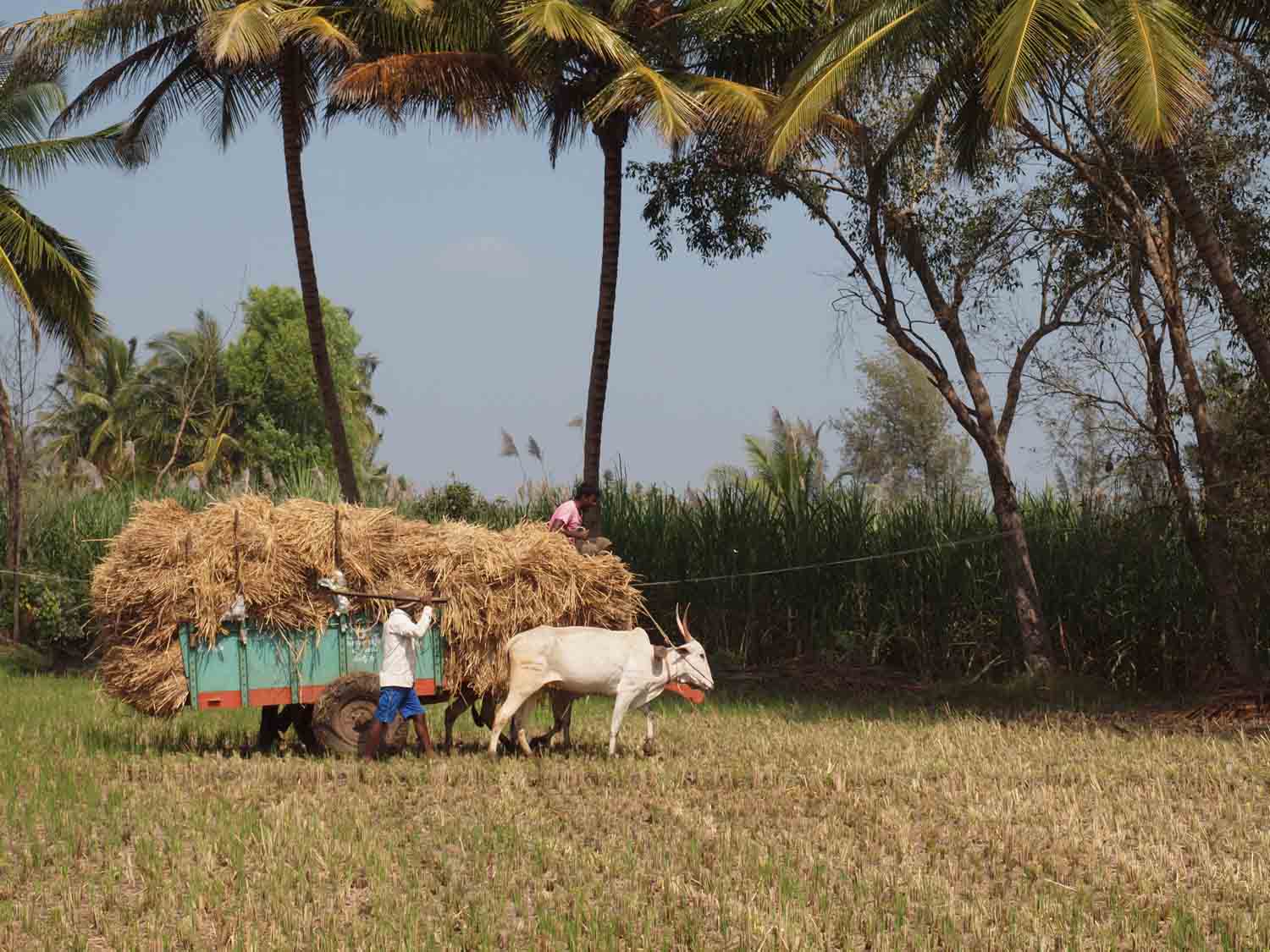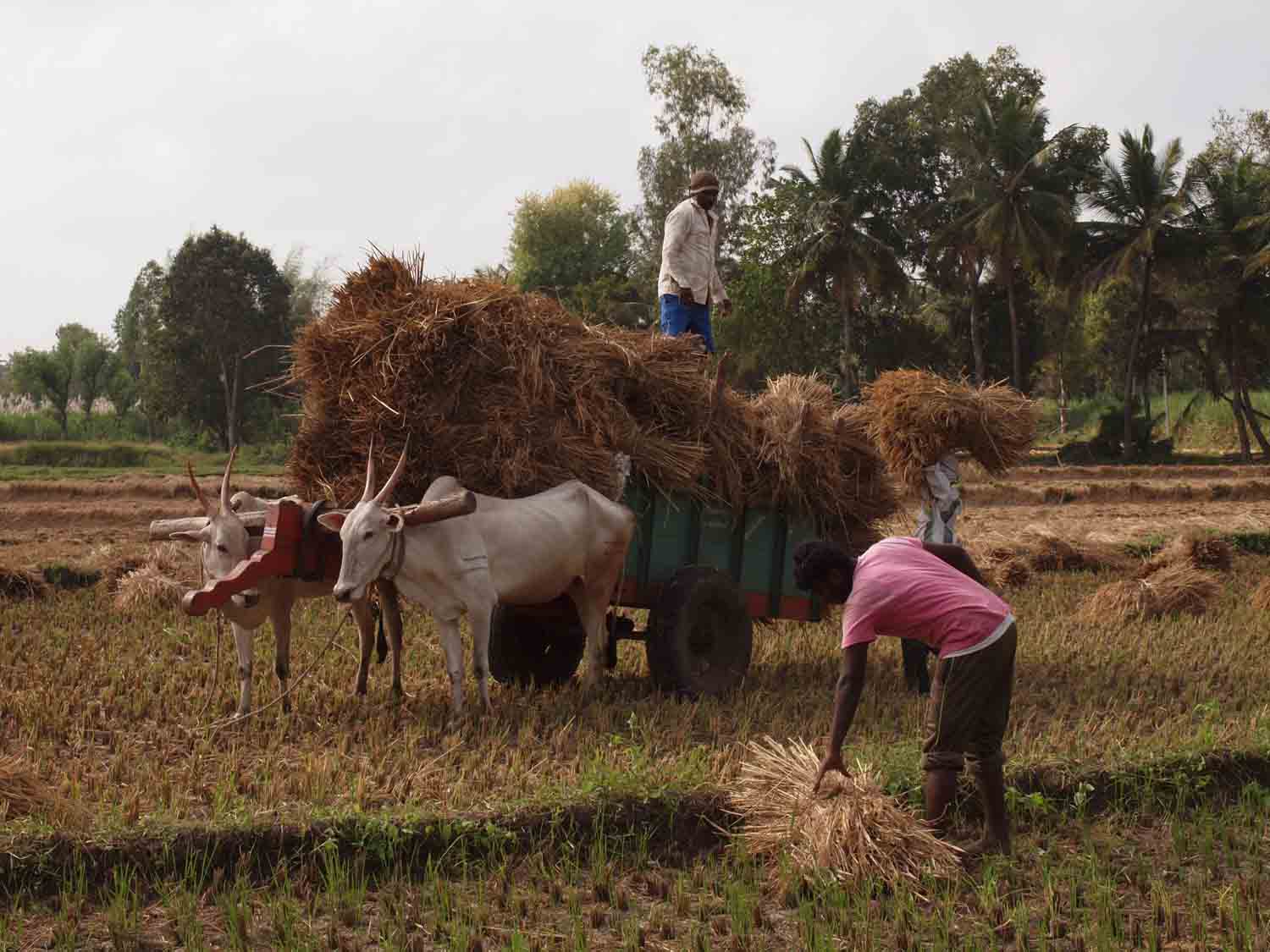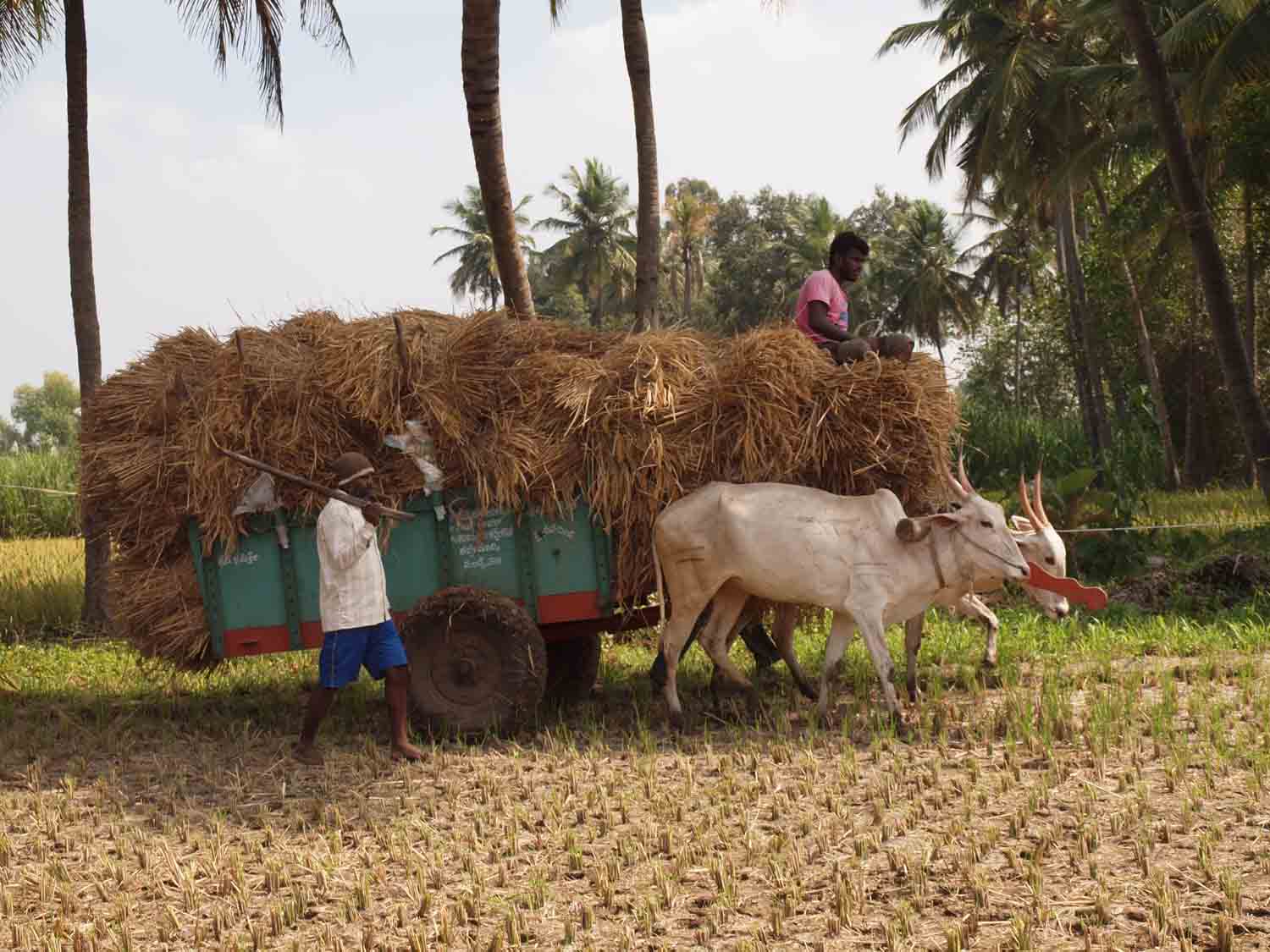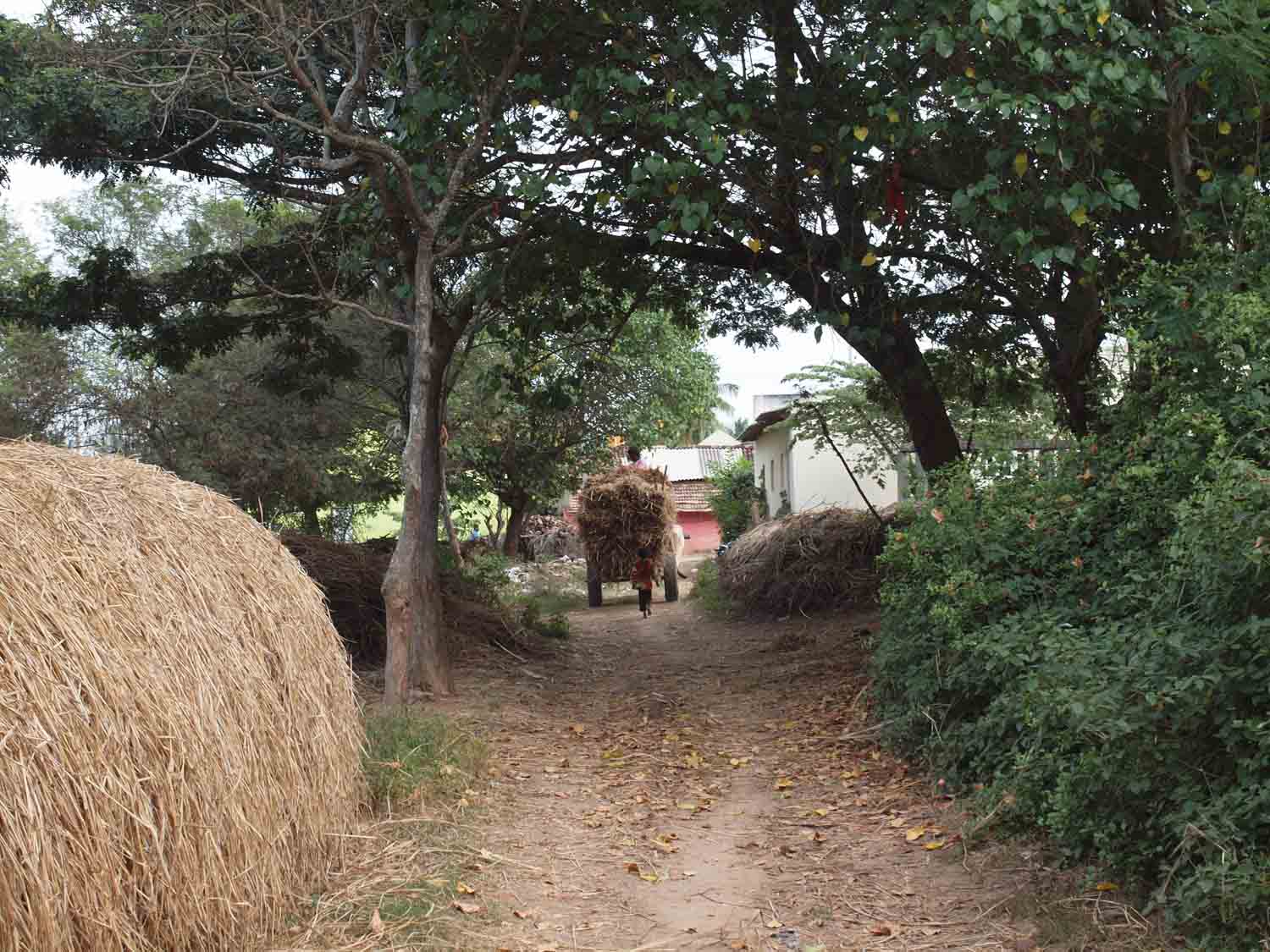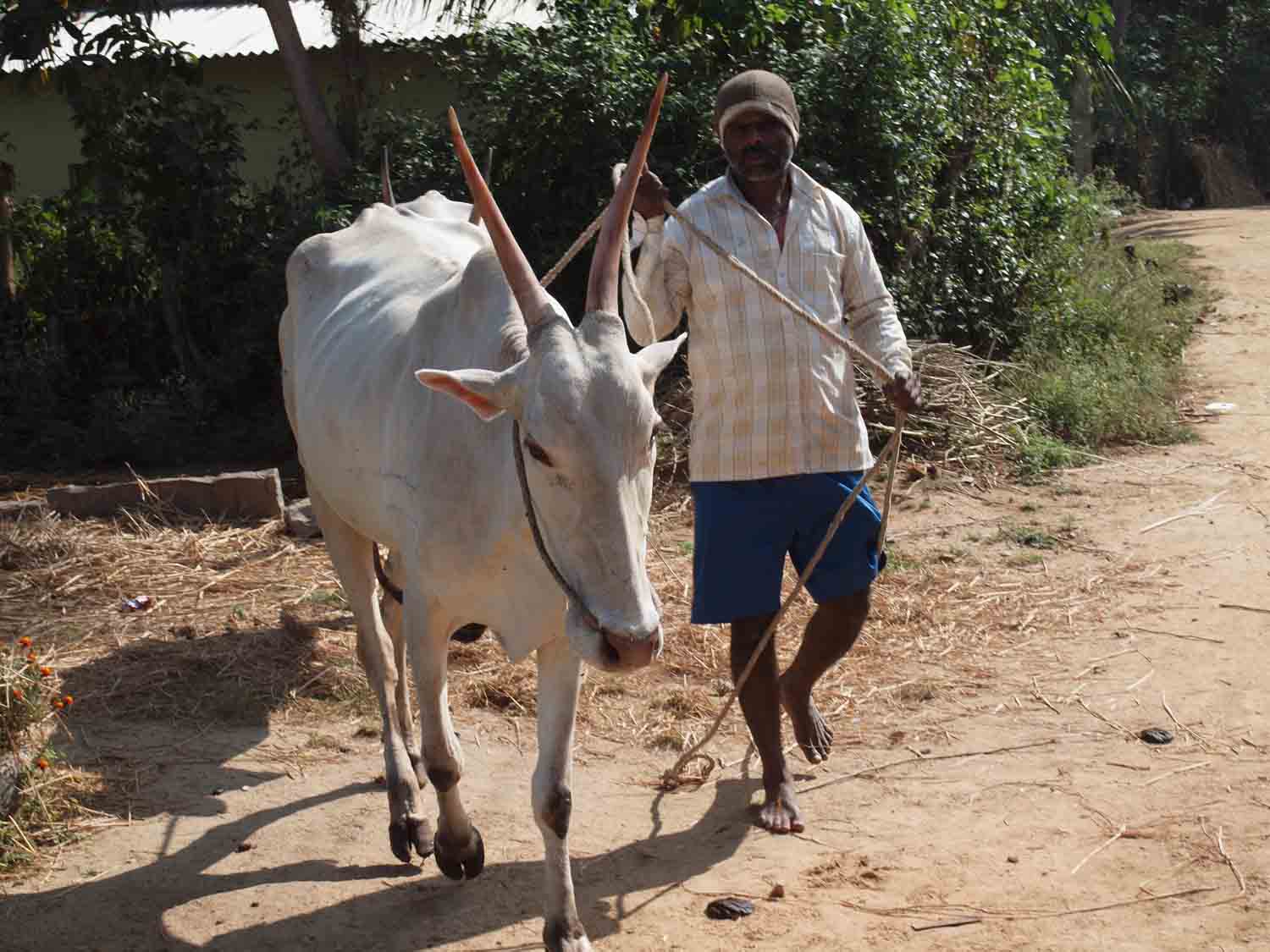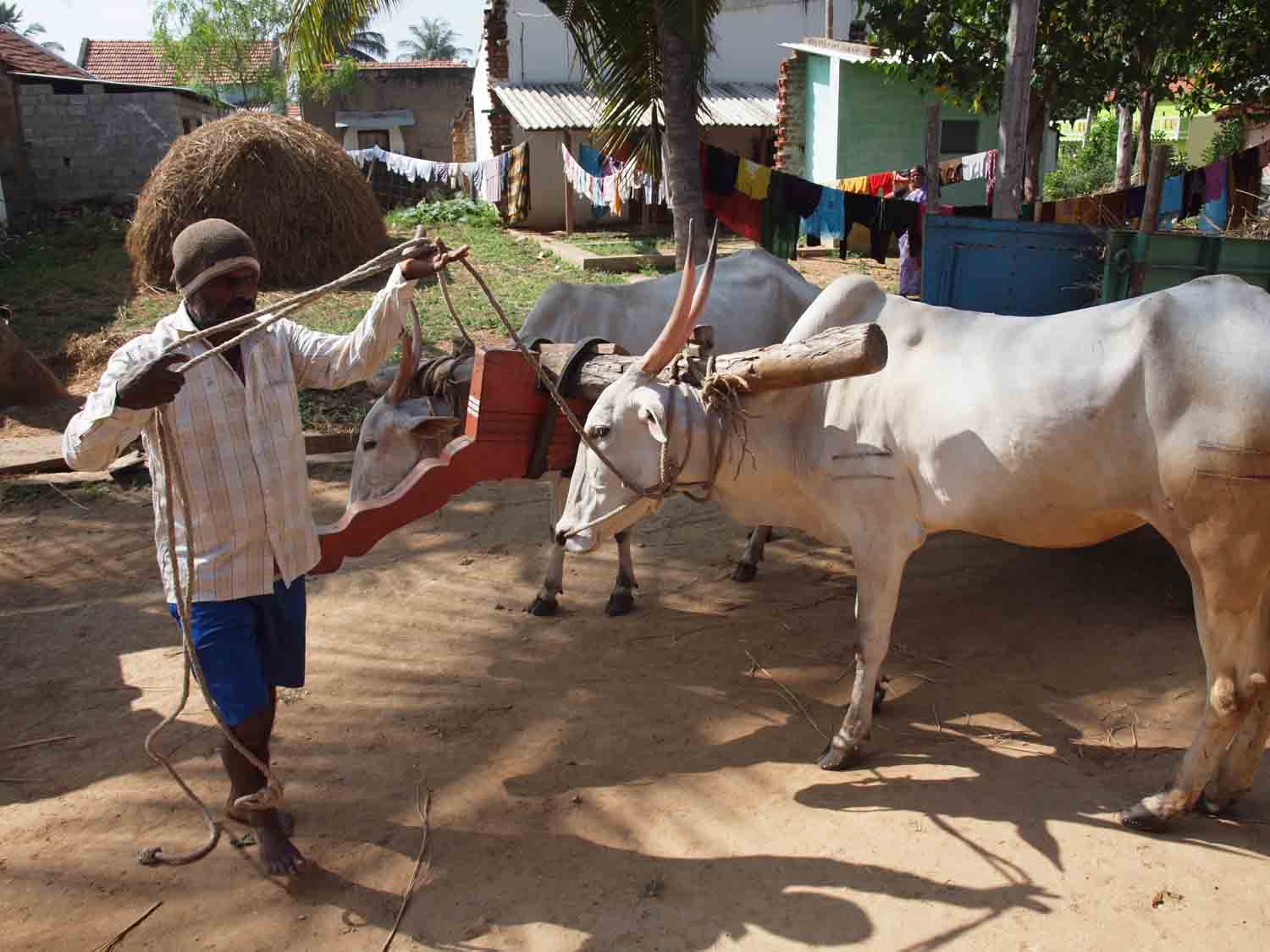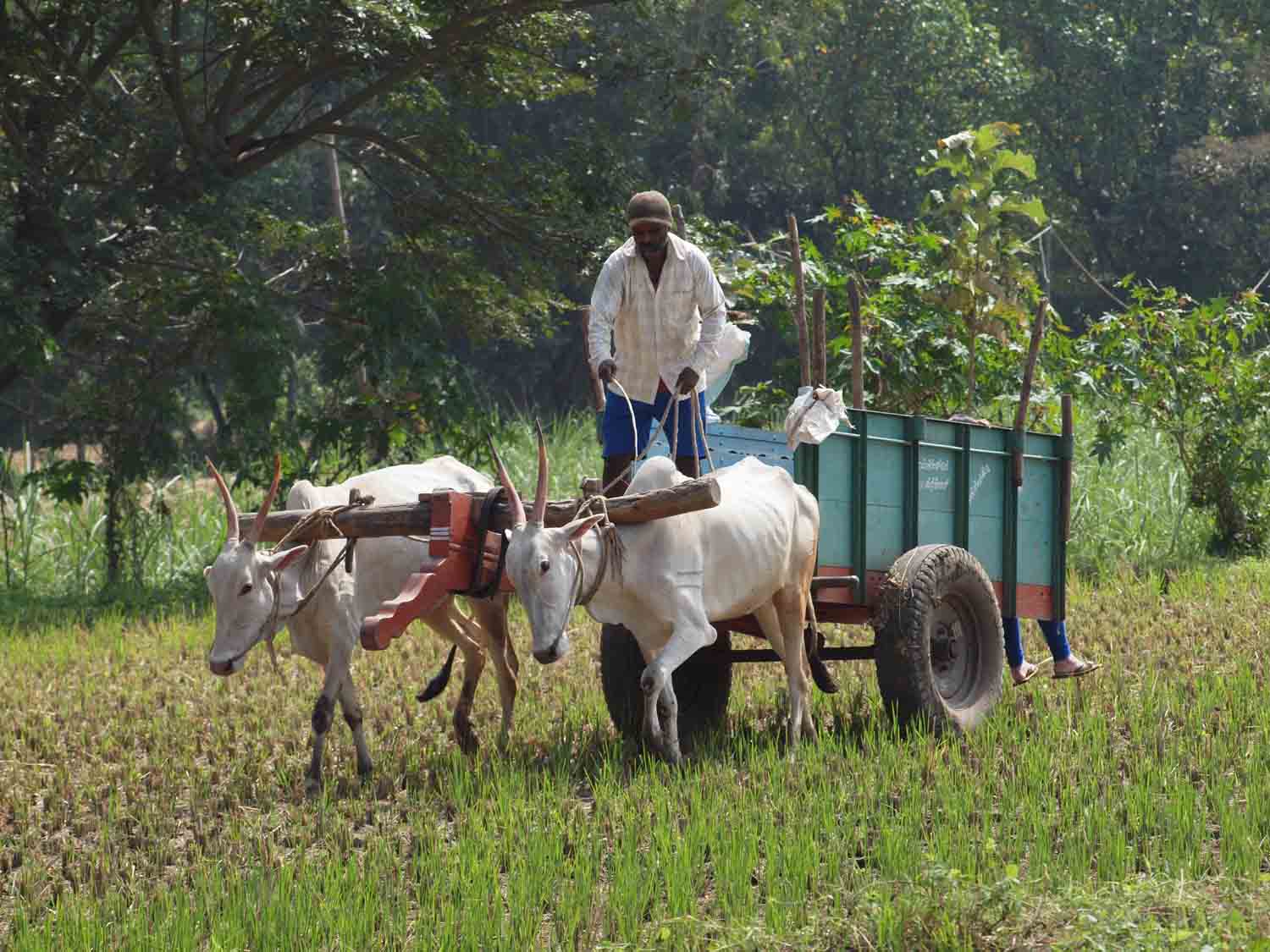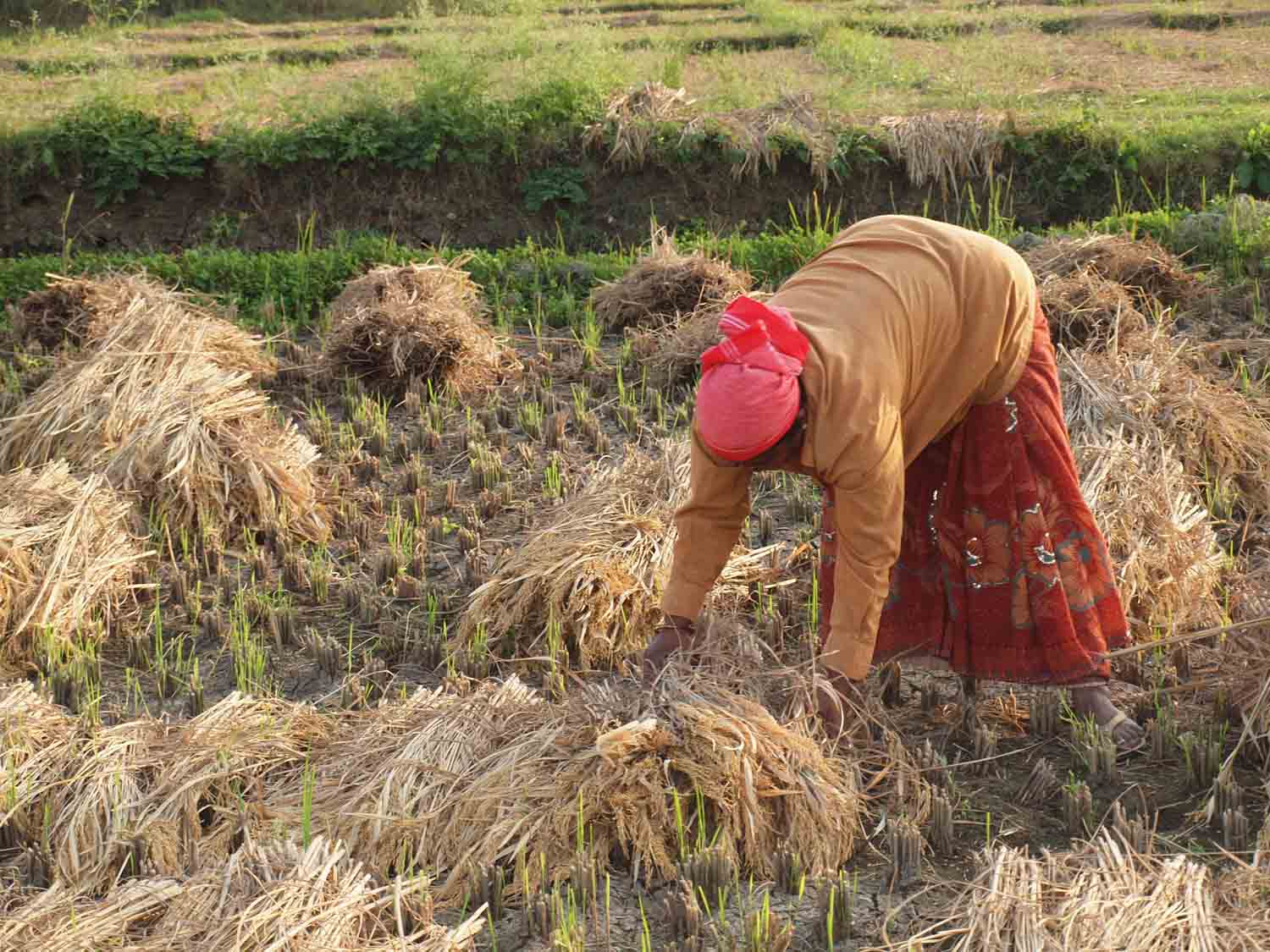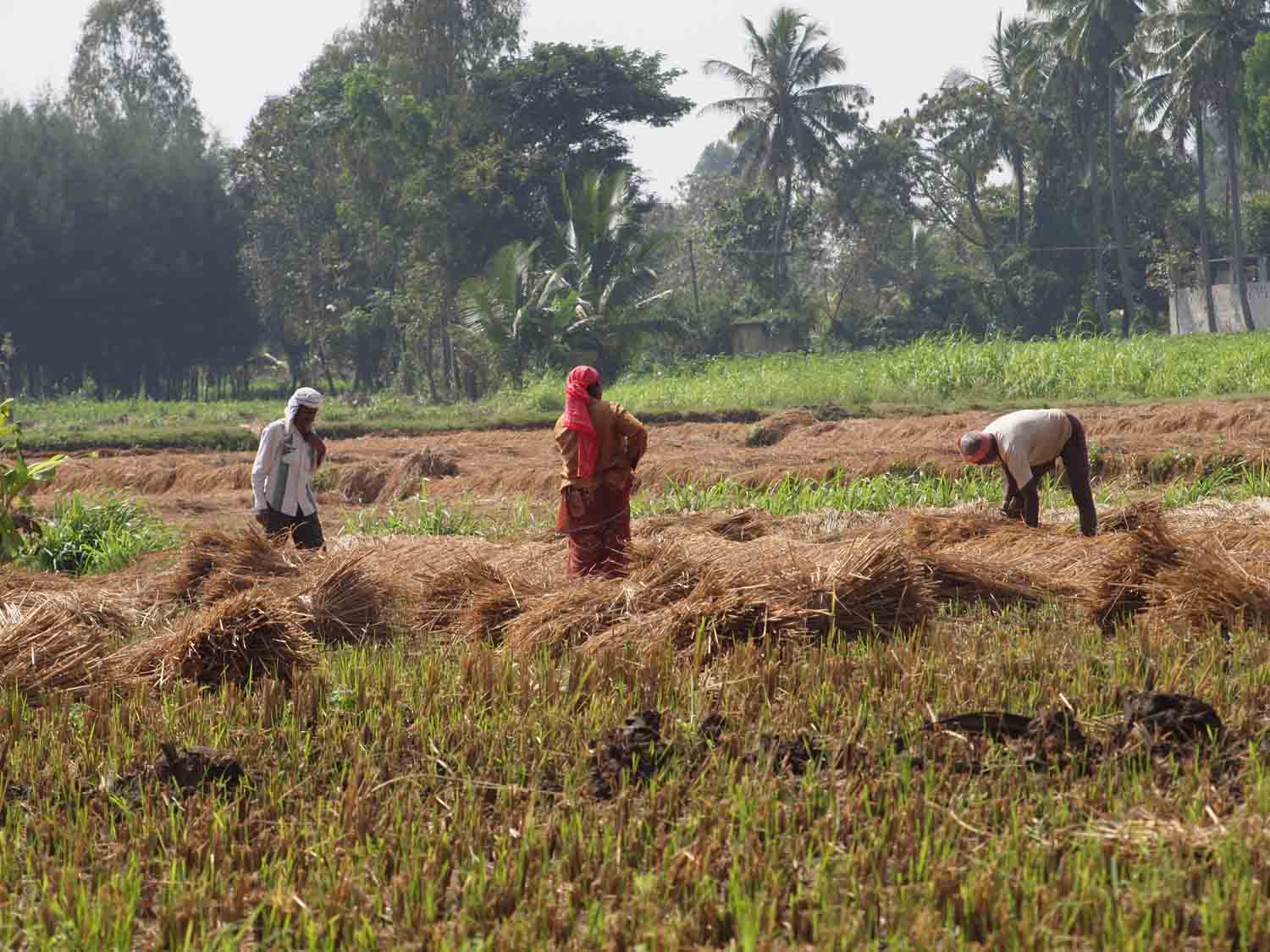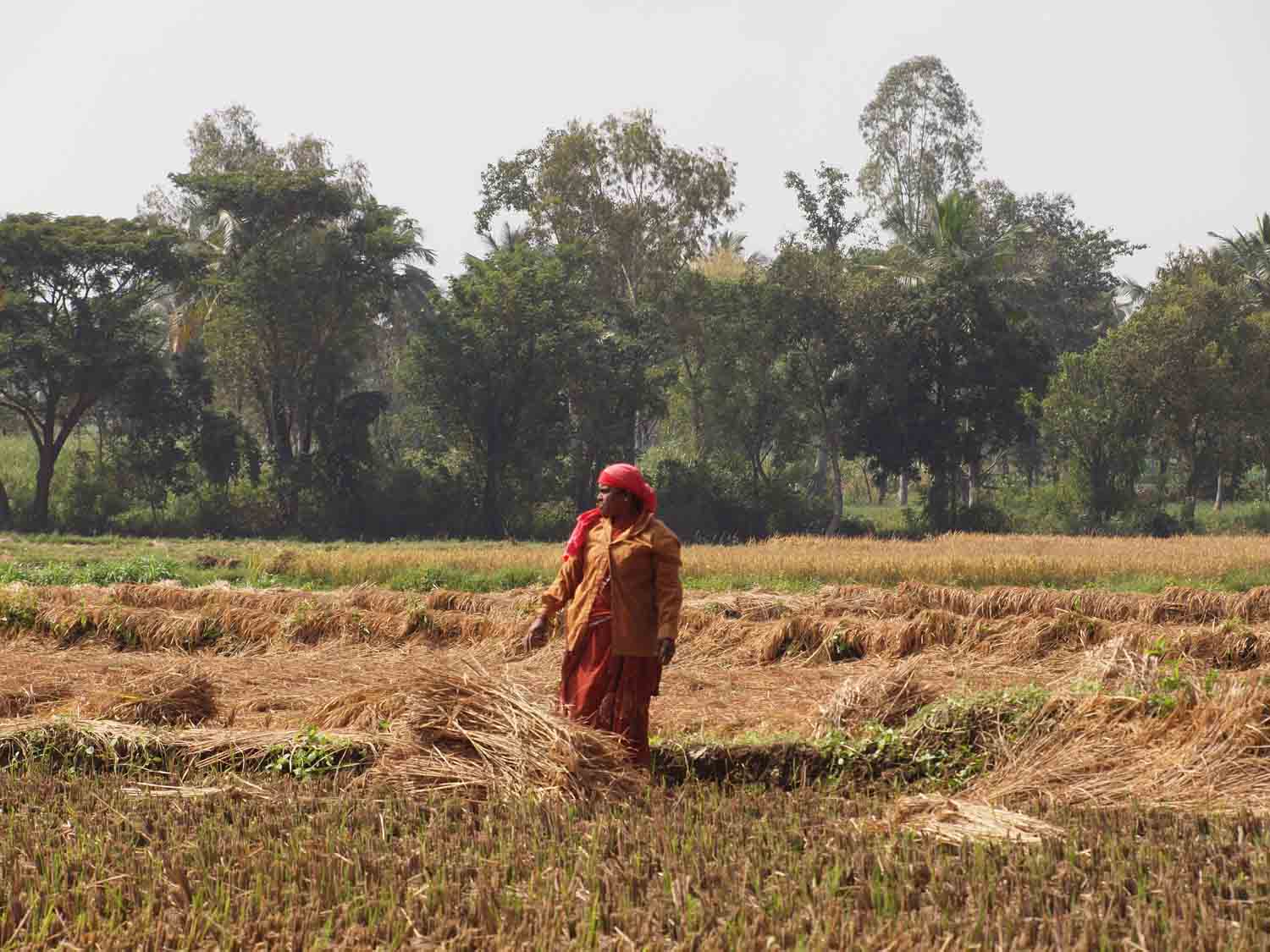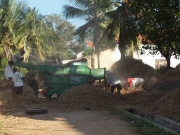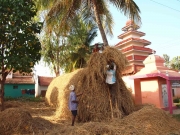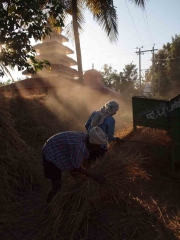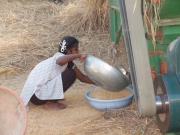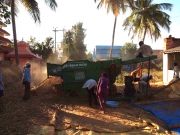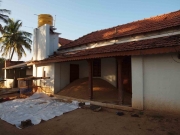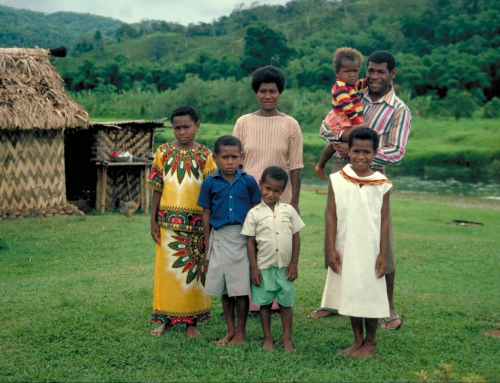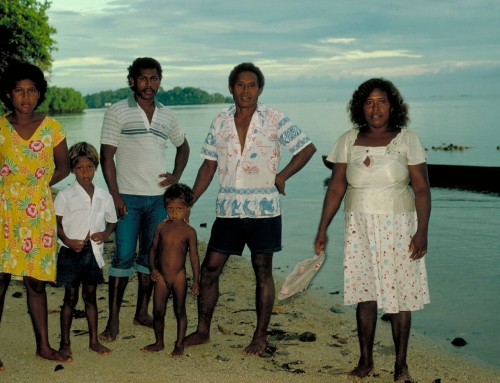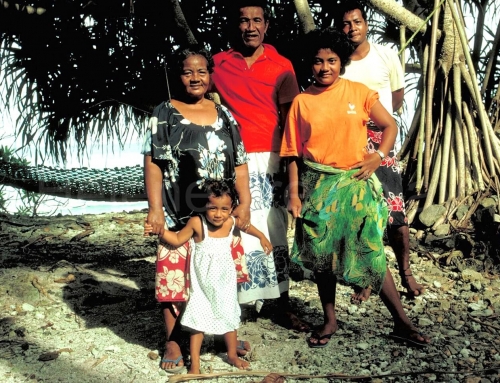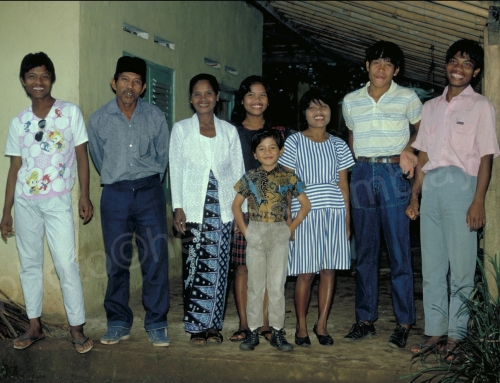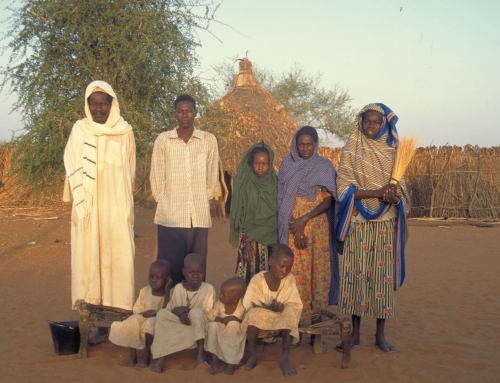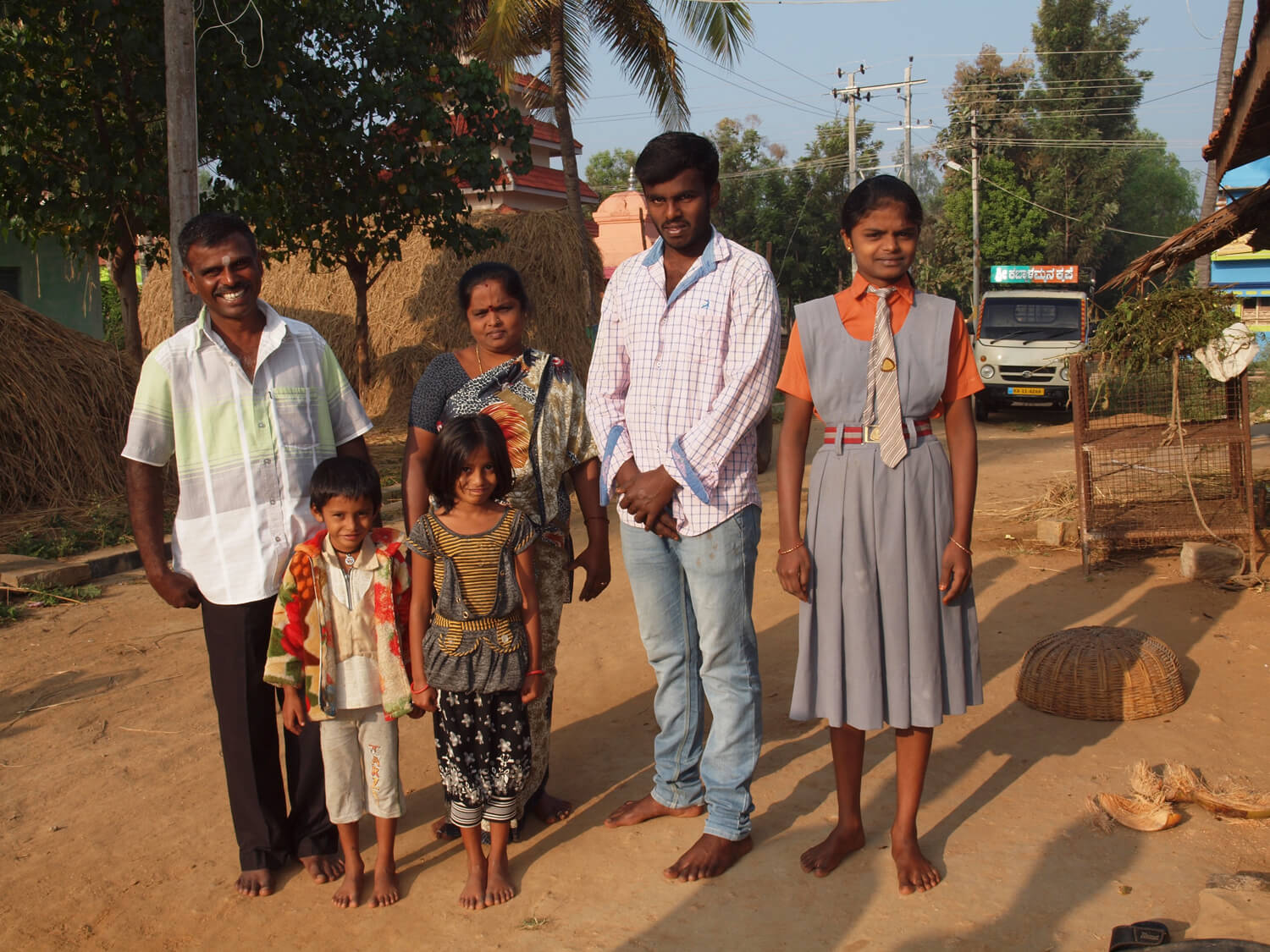
Chandra Shekar CK’s family
Chandra Shekar CK , age 46
Chowdamma, 38
Ysawathgowda, K.C.19
Danalakashmi, K.C. 15
Her sister’s children:
Keerthana, 9
Thorane, 7
2 bullock
1 cow
1 calf
1 buffalo
1 calf
3 goats
1 hen and 6 chicks
Katte Doddi village
The 18th of december 2015
1:45 – In the middle of night, when all is silent, walls have ears. A drunken friend know this and starts speaking to Shekar from the street. In his bed Shekar tells him to go home.
5:30 They have called a new day at every hour of the night but this is the right rooster crow. Chowdamma gets up and with a high pitch tone to which no wall resists, she calls on her household to wake up, calling first her daughter Danalakashmi. “Dana!” “Dana!” With a jar of water she goes straight to the cow’s udder. A few minutes later, she heads down the street with the milk tin can and returns with her leaflet keeping the records of her sales. The village’s women will supply 180 litters in the 4 milk container every morning that the milk factory will pick up in their tour of the villages. Chowdamma now milk the buffalo for the family’s daily need.
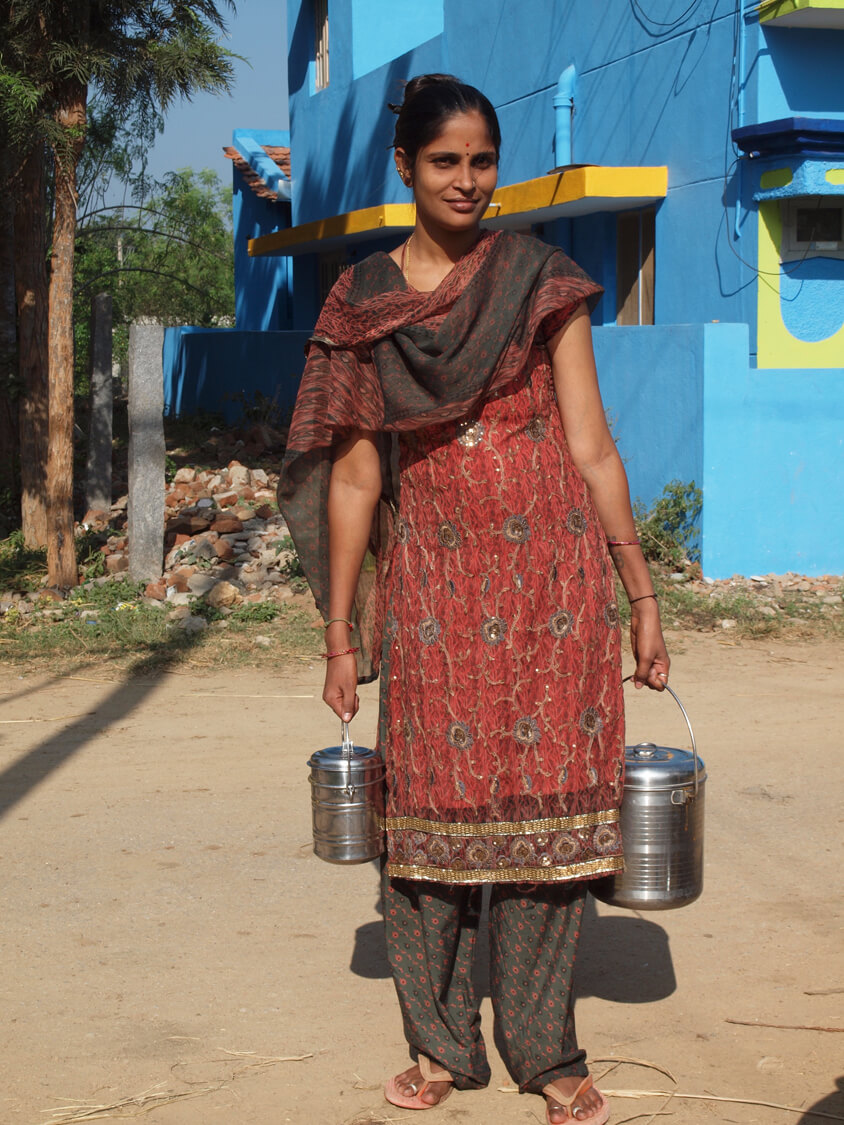
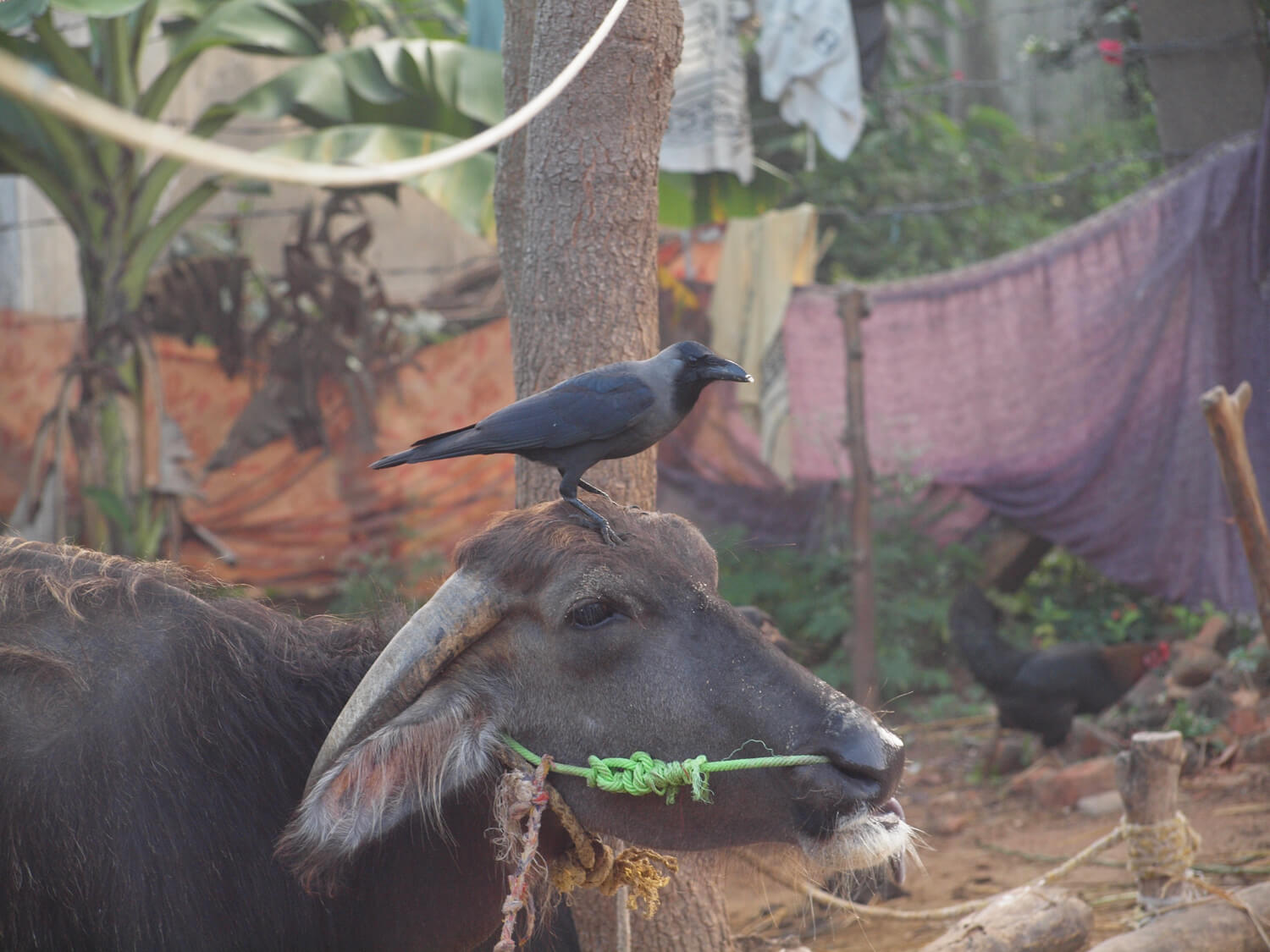
Gowda would rather live without!
Gowda is out of school to help with the paddy harvest. But has every day before going to school. He helps in the yard and Dana helps in the house. Morning and night bullock, cow and calfs are transferred and he must clean the space of the manure before they are moved form their night shelter under the house’s lean to. Then he must bring what he picks up in the street dead end. It will later be used as fertilizer. Katte Doddi, the 1300 people, village has agreed to bio-farming. Atleast to try it and it is known that many do not collaborate with the organisation that promotes best farming.
Gowda has not tools but his hands. He pulls his jacket sleeves has high as possible toward his elbows and brings grass to help him pick up the manure. The look on his face is enough to say that this world is not the dream of his life. He might have forgotten that within the cow live thousands of gods that feed the people. Picking up their manure with one’s hands is an honour and a privilege Gowda would rather live without! However, the children when asked, do it without fuss.
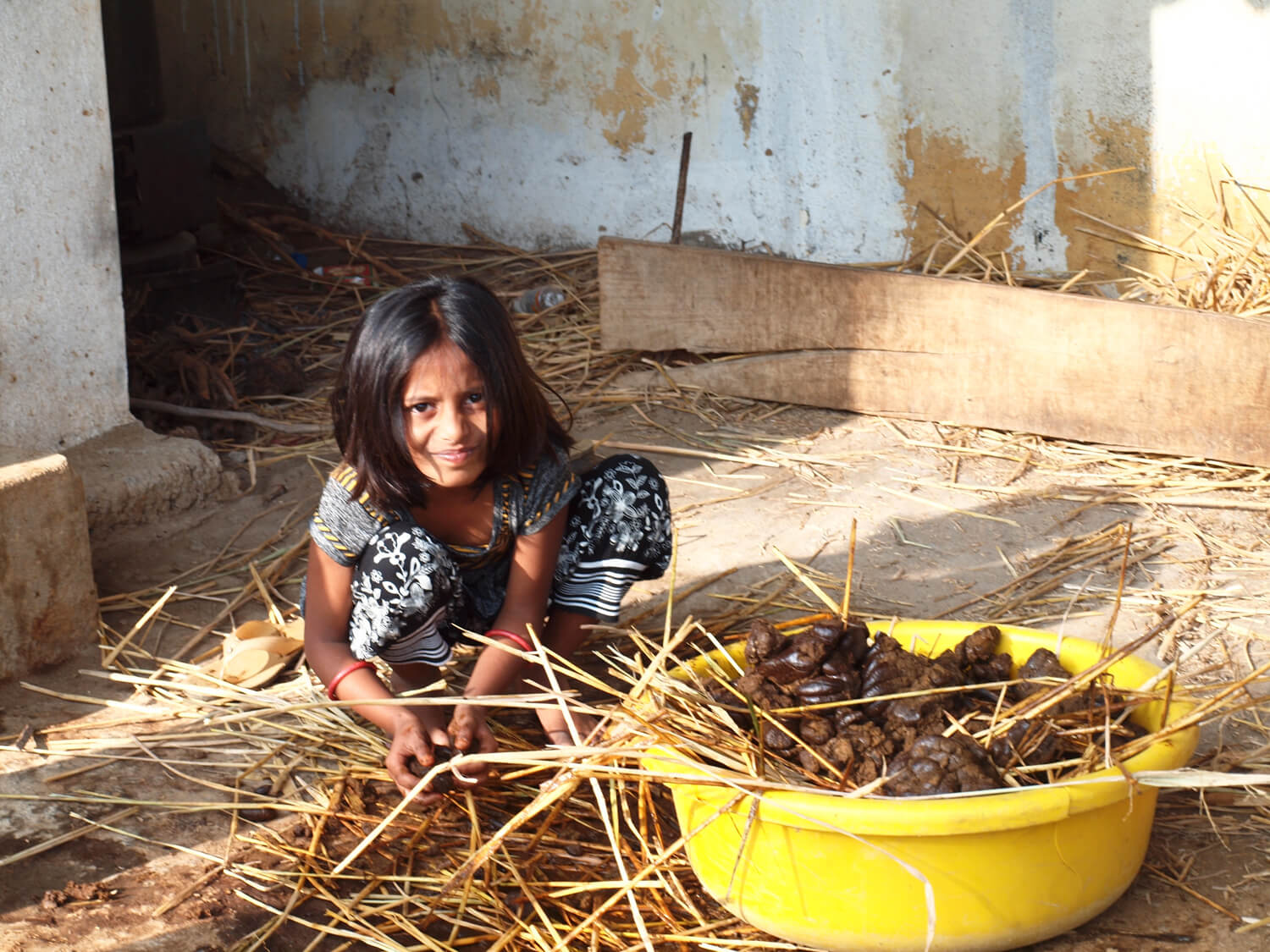
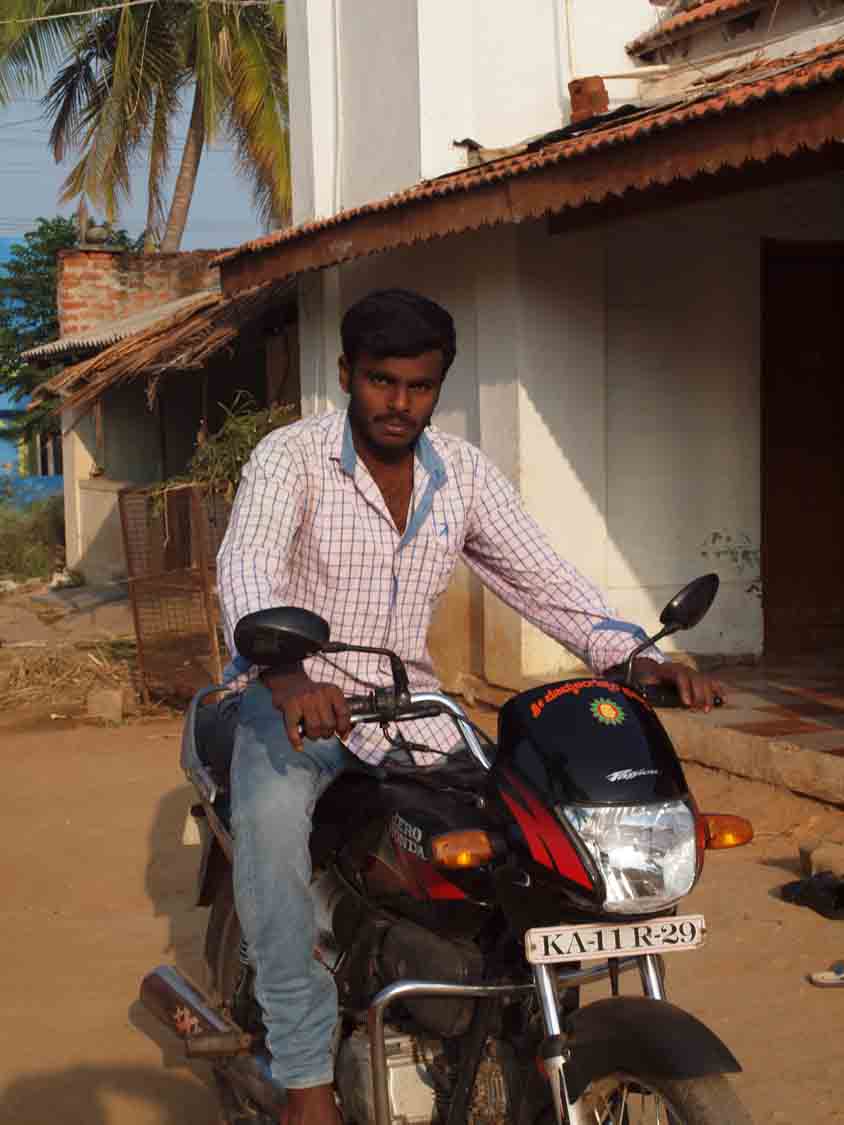
Dreaming of life in the city
Gowda dreams more of the honour of a job in Bengalore. He is studying at the industrial technology and would like to repair computers. That is part of the work he likes. He gets the buffalo and goats out of the closed-in barn they share with Chowdamma’s brother who lives just across the road. All animals are tied to their daily post and grass given to them. Green grass for the two calves. They still need to have put a little fat on their bony structures. Their rope is short and the young ones do not seem to agree to such a limited space of action. The old animals look resign. As seems to be Danalakashmi.
Closing herself to dreams.
She gets into her morning routine with resigned steps and with the energy of someone who has closed herself to dreams. She cleans the dishes from the night before at the street tab and wipes the tile floors before having her breakfast and dressing for school. She does not think of revolting to her chores, sitting down could mean a good beating by her mother. On Sunday, she will wash the family’s clothing and beat the each garment on the rough ciment with the rage that seems to build within the teenage
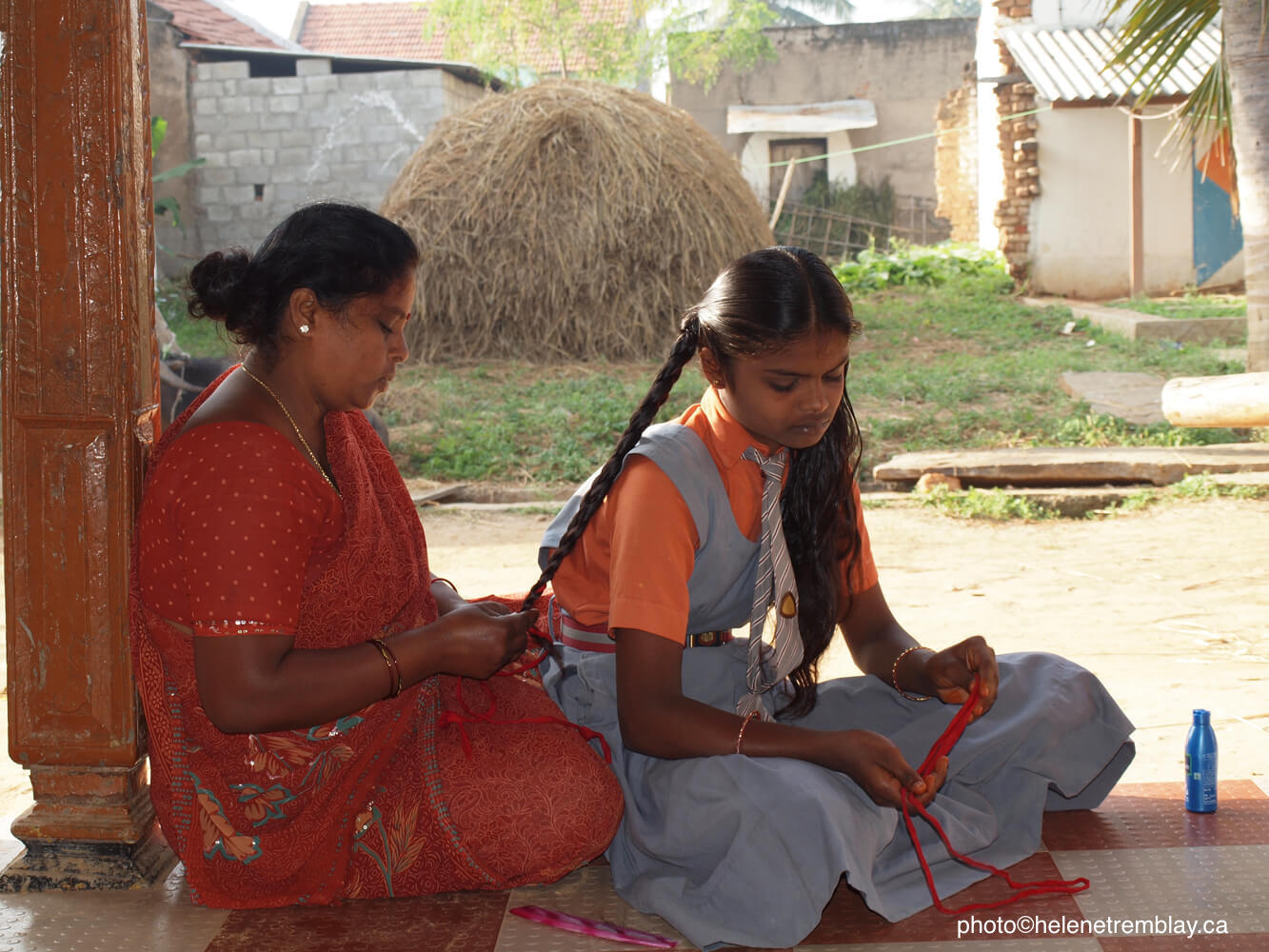
No time for their children
8:30 Chowdamma is coming Dana’s hair both sitting on the house’s step, enjoying the morning warmth. Despite the 20 degrees, the nights are considered cold and the morning sun rays are welcome.
8:45 Breakfast of Ragi ball and sambar – (hamli ) is served. Shekhar sits in the middle of the room with his brother in law. Mahesha’s two children Keerthana and Thorane are too happy to share this moment with their father. He has come to help to harvest the paddy. Chowdamma’s sister works in a garment factory in Bengarole and Mahesha works in a hotel. They have no time for their children and they have been staying here for a year now and they hope that in another year their parents will be settled and able to take them back with them.
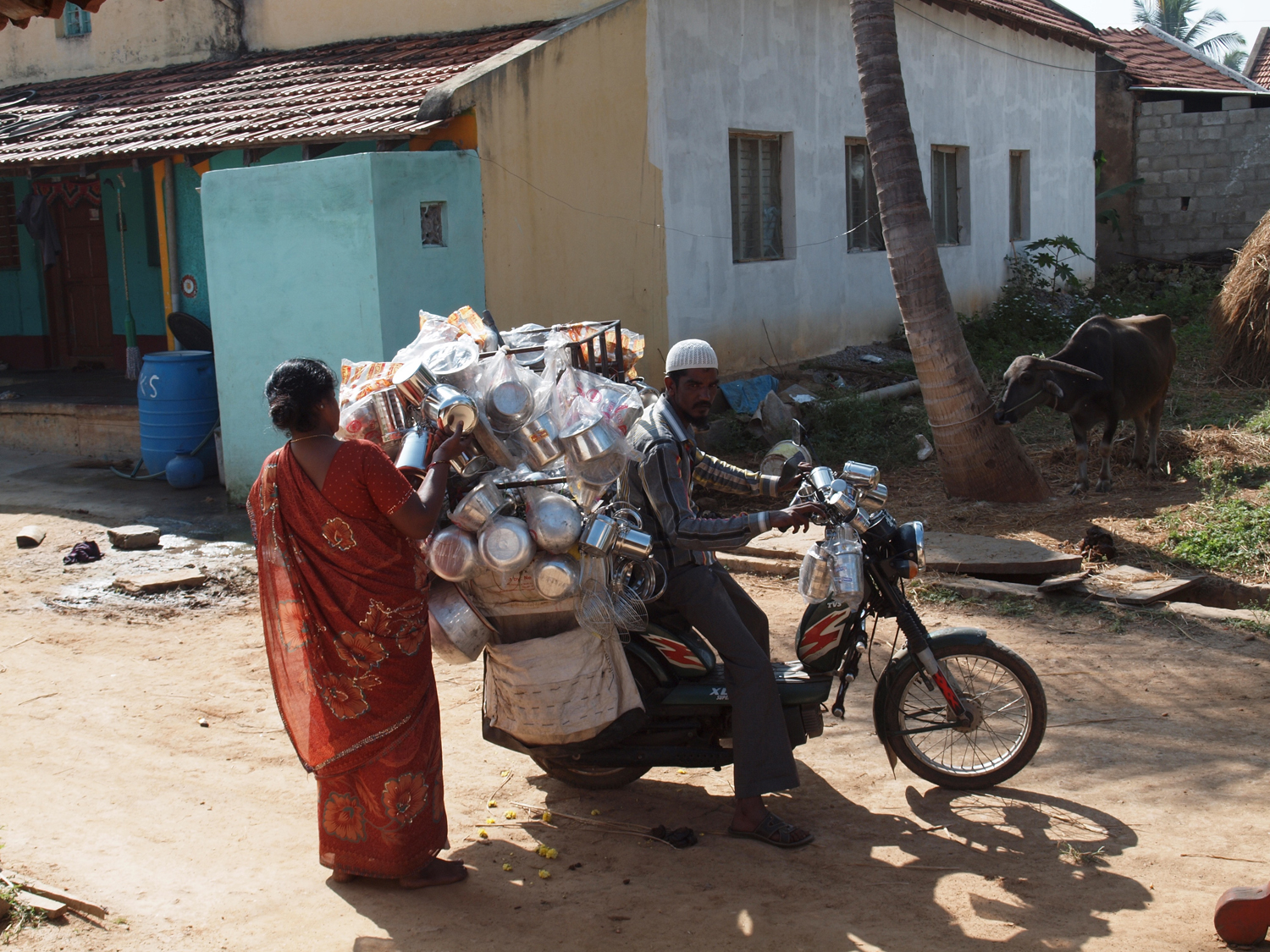
Each one their god, each one it’s karma
Today, there is not much time for the house’s pooja room. The picture of Chandra Shekar CK’ s father sits beside the family diety Shiva.The house’s god will watch over them anyway. Gods certainly know the hard work that must be put in these days to feed a family in the shrinking farms of India. Each one their god, each one it’s karma, one of the recipe of the country’s tolerance.
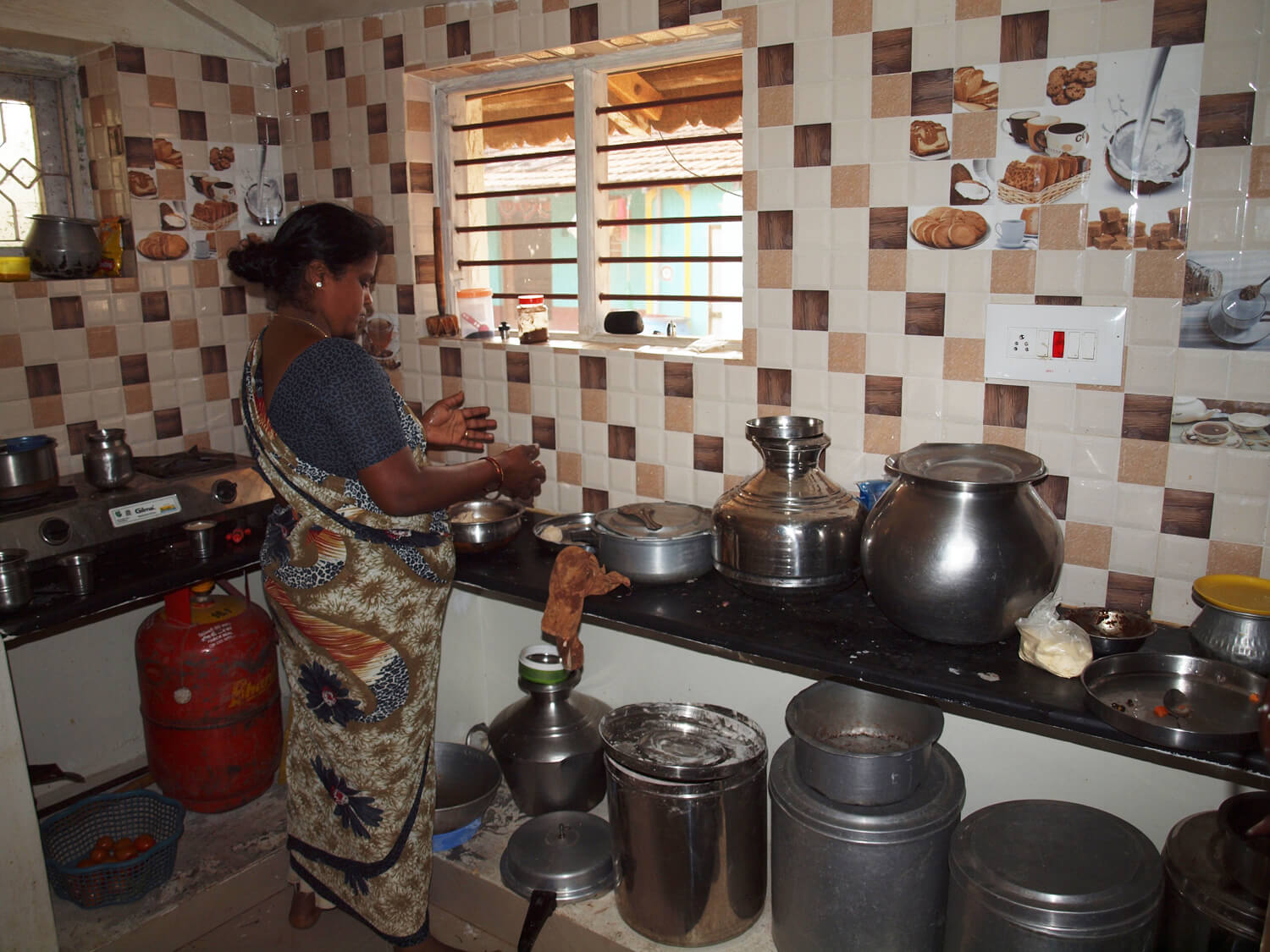
Her parents will decide
When asked what she wants to do after her 10 years of obligatory education, she says it is her parents who will decide. When later she dares speak, she says she wants to be a doctor. Both her parents say they want a good education for her, they have not thought of marriage yet for her. She is only 15 and the legal age of marriage is 18. Birth registration have now to be shown so that the law is applied. This has brought some respite to the girls who were married too young.
Some personal reason that cannot be told
Will she have the choice of her own destiny? Dana still does not know that. Her life is not in her own hands. A young women of the village committed suicide just three months ago and their was a function just last night to underline her death. No one dares to talk about the reason but rumours has it so that it was a question of love versus arrange marriage.
Shekar says his, was a love mariage and that he use to write poetry when young. He will try to satisfy his daughter’s desire. He wants a good education for her and his son and that is he pays private schools. He would have wanted better for himself having to stop his education before studying social science at the university. Some personal reason that cannot be told, brought him back to the village.
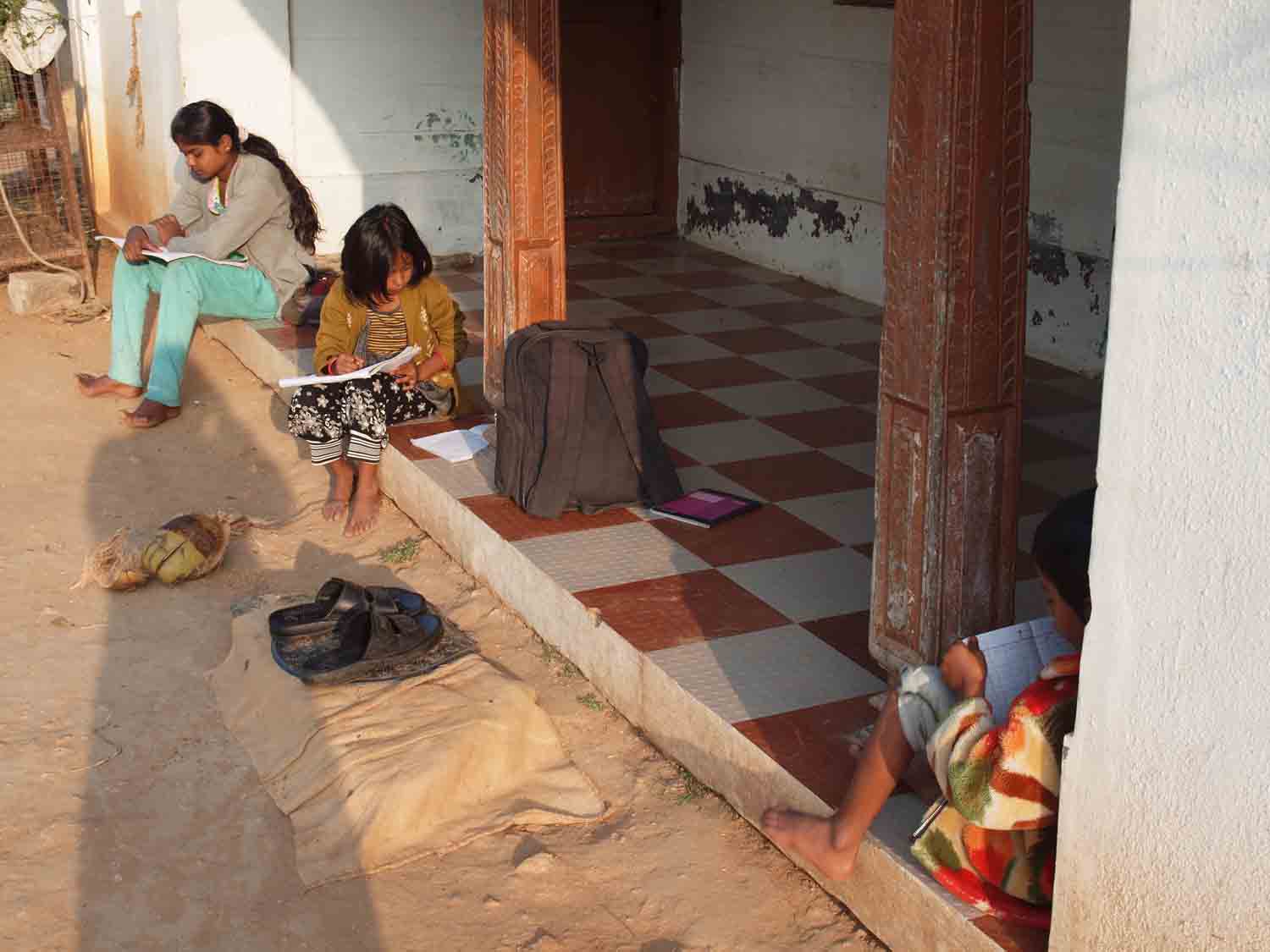
Saturday school meditation
As every saturday morning, at school, the day begins with meditation. Sitting in the school yard, the student sit in straight rows, repeating the mantras said by the teacher. Then a puja is done by the school director demanding blessing for all the students. “This quiet moment helps them in their concentration and in their memory” he says Maybe it quiets Dana’s heart and makes her forget the last beating and too many obligation.
The thousand students head for their classes. They sits tightly in the over crowded room. Despite their desire most will, or be obliged to quit after their 10 years compulsory studies. Only 3% of India’s student get to higher education.
What will India eat? – “Industrial food probably.”
He continues saying ” Here we worship Hannuman, we practice Raja Yoga and give a traditionnal cultural plus a modern education. This is necessary as he believes that in the next 10 years the type of living style of the villages around his school, will not exist any more. What will India eat? “Industrial food probably”.. he answers.
On the way to Halle Badnur and the private Sri Venkateshwar Bidhya, the school bus travels on the small roads through the fields that lie between villages. There grows ragi, the silk plant, rice and sugar cane. These are the wet lands of Karnataka.
After the children have left, silence falls on the village and in the house. The electricity has been cut. The KEB, the Karnataka Electricity board manages the power and cuts it when the demand is too large. If in some places they know at what time it will occur, here they dont. Cuts come randomly.
10:00 A salesman passes in front of the house with his autorickshaw packed with aluminum containers and dishes. Chowdamma negotiates a small aluminum container. She barters some of her and Dana’s hair that she gathers every morning. One hundred grams of hair earns 300 hundred roupies . There is not enough in the plastic bag she presents so she looks on the beam under the (lean to) where she puts them every morning. Finally the deal is made.
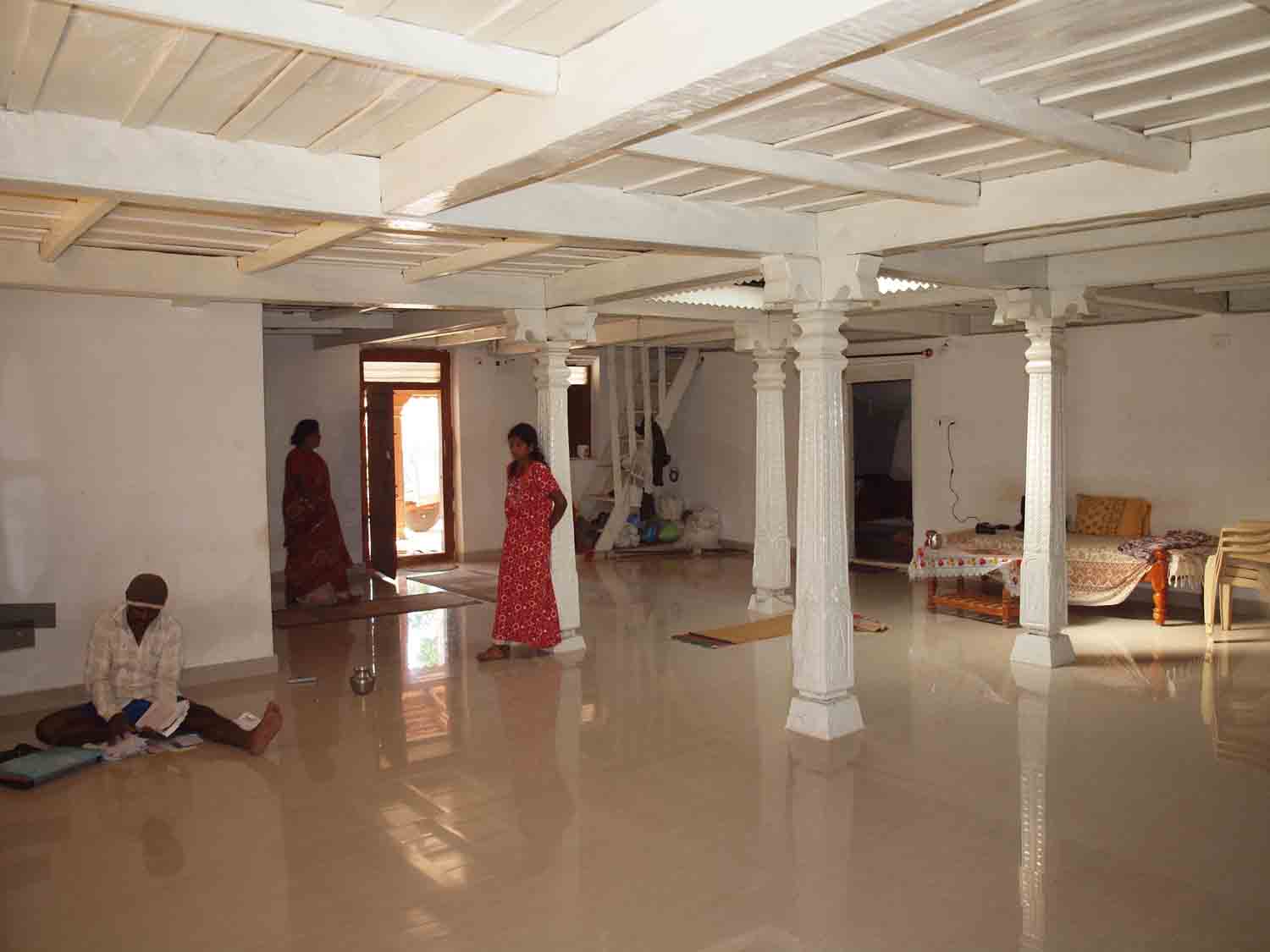
All the labourers are booked today
Shekar has prepare the bullock and gone to the field with his son and bother-in-law. Chowdamma will follow later after she has prepared lunch. She has not found a labourer, those without land that employ themselves to various farmers. Today they are all booked. Shekhar wants the 5 trips needed to bring the harvest home to be finished by the end of the day. Tomorrow, Sunday, he has rented the treashing equipment to separage the rice grain form the paddy.
They pile the wagon to its maximum and the bullocks fall to their knees trying to get the cart out of the field, the wheels are deep down in the soft (watery) irrigated soil and the animals’s feet are sinking deep. They must get to dryer land and need the help of Shekar to lighten the load on their hunch back neck. Accompanies by the men’s yelling, they find the energy to move the cart out of the field. When that is done, they courageously bring the rice to its destination.
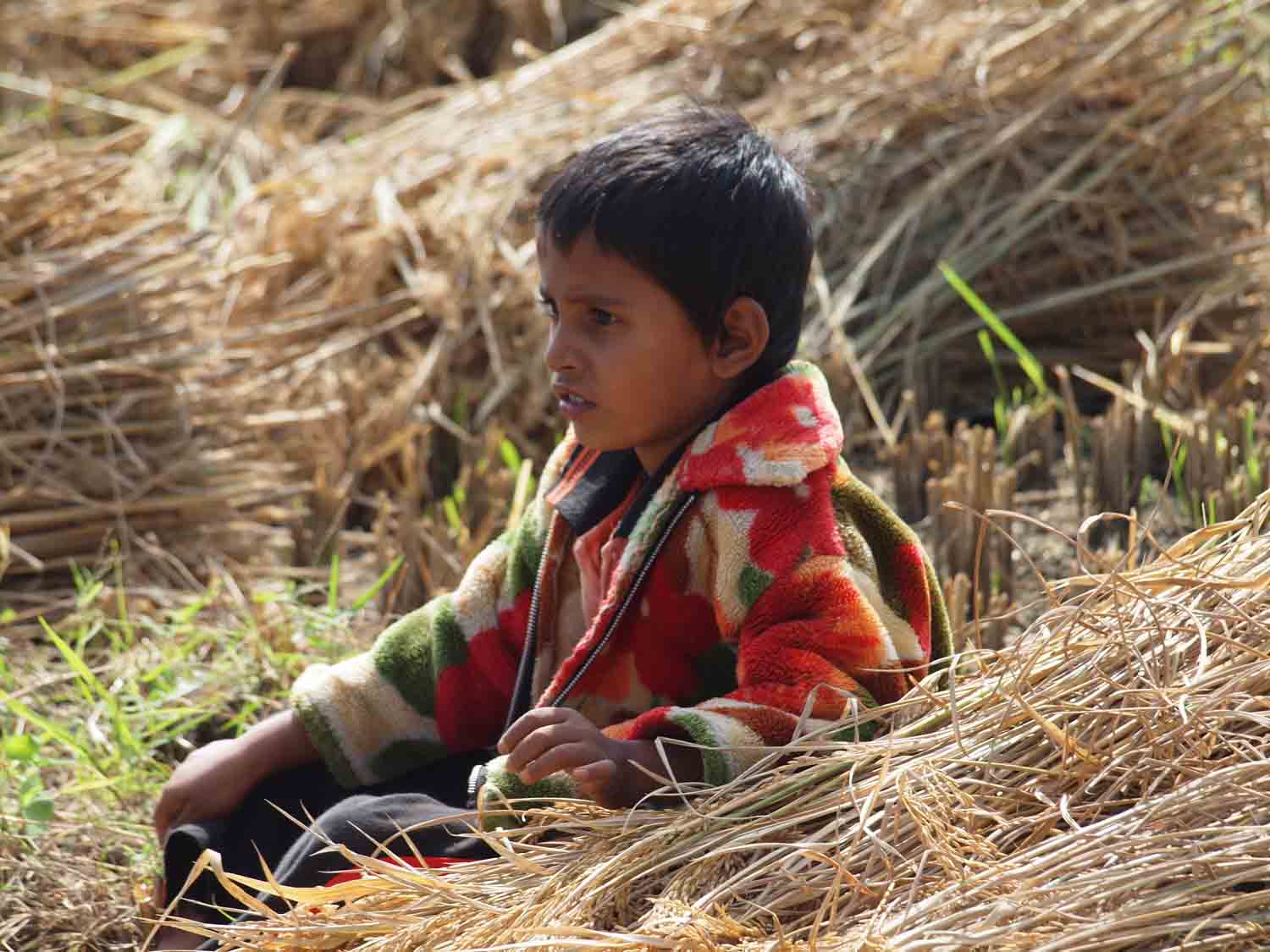
The traditional heritage system
11:00 After having brought the animals to drink, Chowdamma joins in the field work.The harvested rice paddy laying down in the field must be gathered in piles and tied together before being put into the carts. She will do that with her sister’s husband, while Shekar and his son Gowda get the bullocks home and back.
It is under the heat of the noon sun that every one is working without stop.It is becoming difficult to feed one’s family in the fields of India today. When Shekar was young his family had 12 acres of land. That land was shared between his 6 brothers leaving him 2.5 acres. For more and more people, the land is getting smaller and smaller because of the traditional heritage system. This added to the fluctuation of the prices on the international market is bringing also more and more insecurity. It is chasing farmers away from the fields. Land is sold to build more and more real estate properties. Making money elsewhere will feed you better then working the fields think the farmers.
A middle class farmer in India
In 2009 Shekar won the best agricultural award as best farmer and this gain him a trip to visit farms in Tamid Nadu. There he saw that factories where given 3000 roupies a ton of sugar. Now the farmers are asking for 2800 but the factories, which are government control and mainly owned by the politicians themselves are only paying 1300. Famers are leaving the sugar field ans are now putting their choice on the silk farming.
This is the only regular income that comes monthly to the farmers and can provide 10 thousand roupies. Rice and ragi comes after many months of work and sugar cane they just hope they will be paid.
With 2.5 acres, Shekhar is considered a middle class farmer and it is during the good years that he allowed to make improvement in his family’s life. This way he got this way his motorcycle and last year he finally finish his father’s house soil in shiny tiles. The traditional house still had the opening in the roof that would let in the water rain captured for domestic use. Shekhar has covered the holes and they now have a spacious family room.
No one can imagine a cure
Dana and the 9th standards revises the math class the mean deviation for grouped data and in social science they revise the structure of their government and that India is secular, democratic, sovereign, socialist and a welfare republic. Of the people, to the people for the people repeat the students. The teachers will not talk about the corruption which is part of the diseases plague of the country to which no one can imagine a cure.
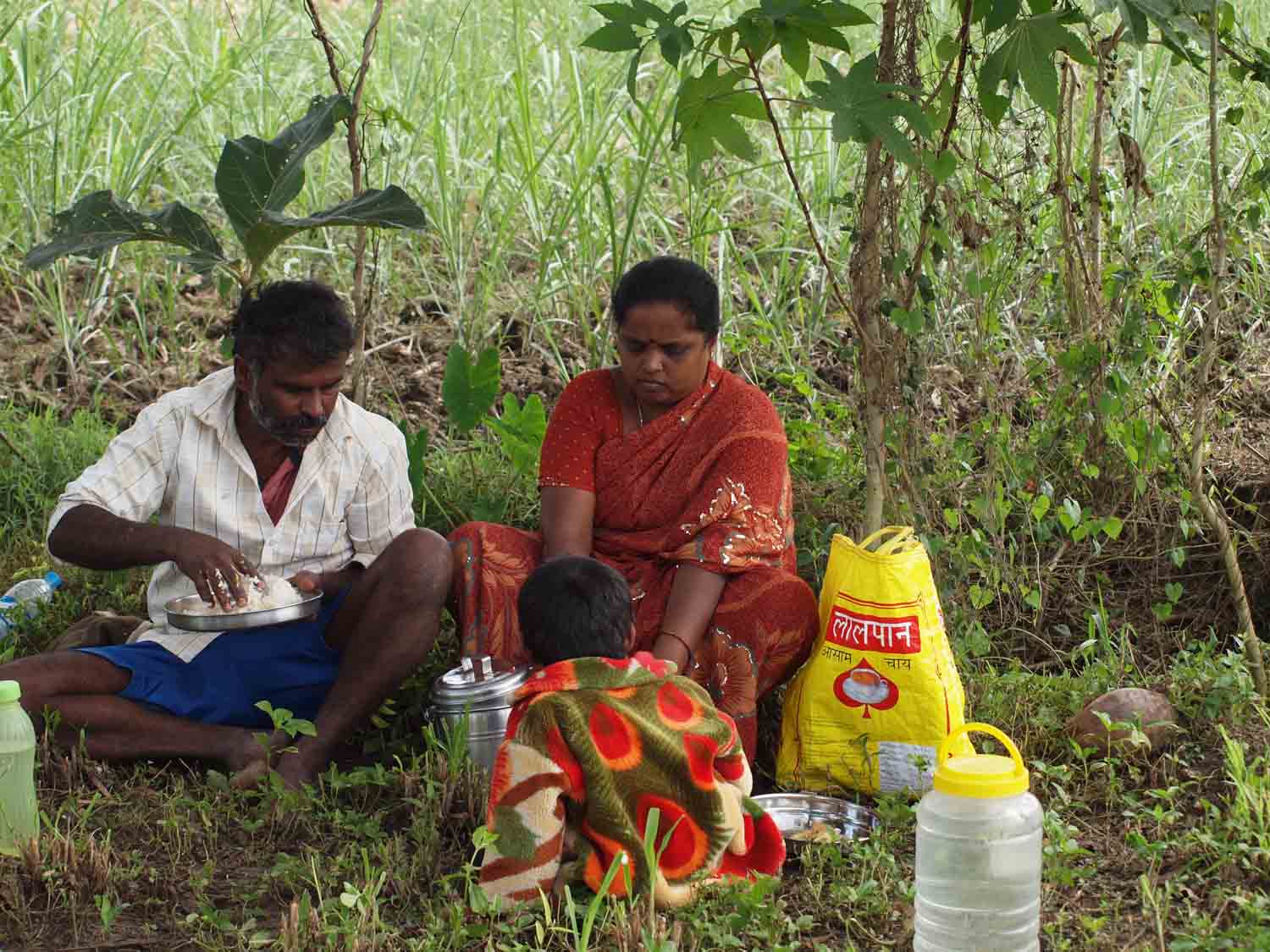
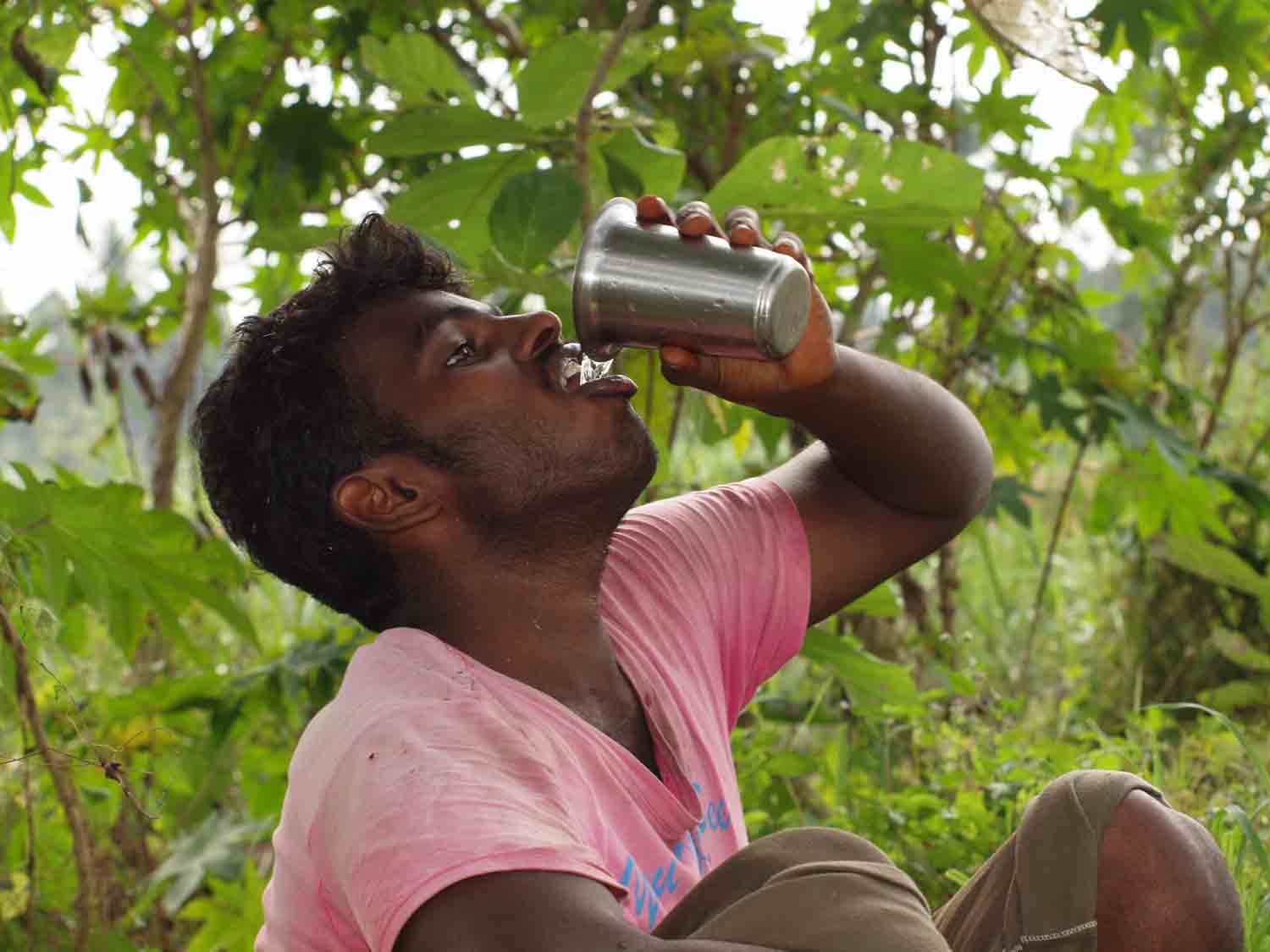
The prevalent stomachs of city dwellers
2:30 Chowdamma goes back to the house to get lunch, Gowda goes up a tree to return with coconuts. His body is still in shape. Bud bodies change once in the city. The high quatity of starch in the diet without exercises can be seen in the prevalent stomachs of city dwellers.
From the field on his cell phone Shekhar answers requests, solves problems and plans maybe tomorrow. Before we had phone, we had to go at people’s door. We had to plan, now we do not plan anymore. Everything is done more at the last minute and we are less concentrated.
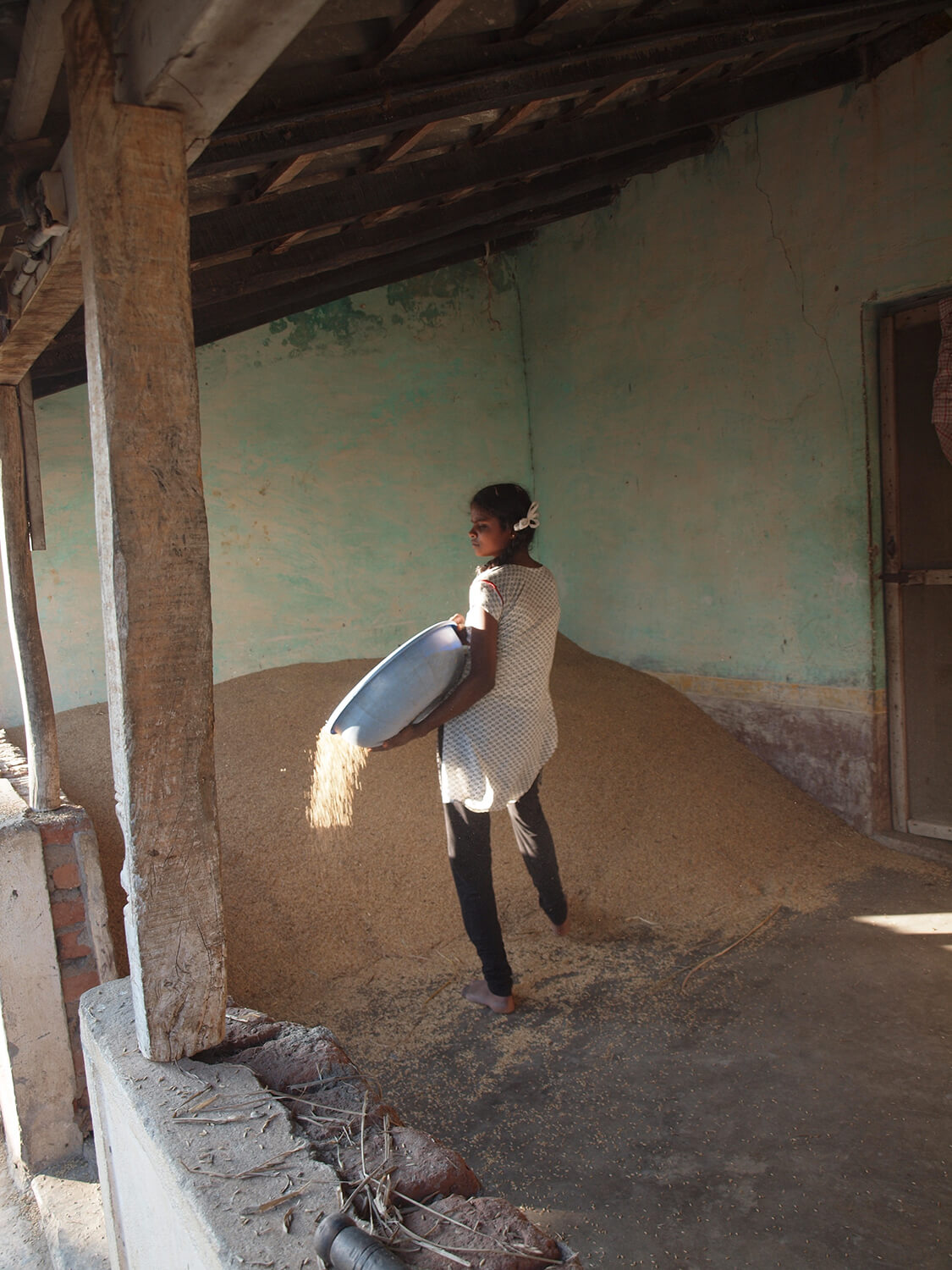
In a hurry to sale his rice.
In the field they work faster and faster but they do not manage. They end the day tying the last bundle of paddy of the last trip they will come and get first thing in the morning before the rice shedding machine is delivered at their door. Shekhar is in a hurry to sale his rice. Money is needed. Now that he knows his son will not take over, he is seriously thinking of putting his own interests outside of farming.
Exchanging ideas for survival
The day after tomorrow he will sit with his adviser, get the bills out and discuss what has been paid and what still has to be paid.
7:00 The Poojari rings the bell in the village temple. It is just behind the ashram where people gather for special pujas. Askhar and his brothers have made possible the construction of the (describe) building by assuring that this will be their burial ground.
After dark, after showers and having to leave life to darkness, Askhar sits with his older brother. They exchange ideas for survival because this is what life is all about now. Maybe a restaurent (hotel) on the road between Mandya and Mysore?
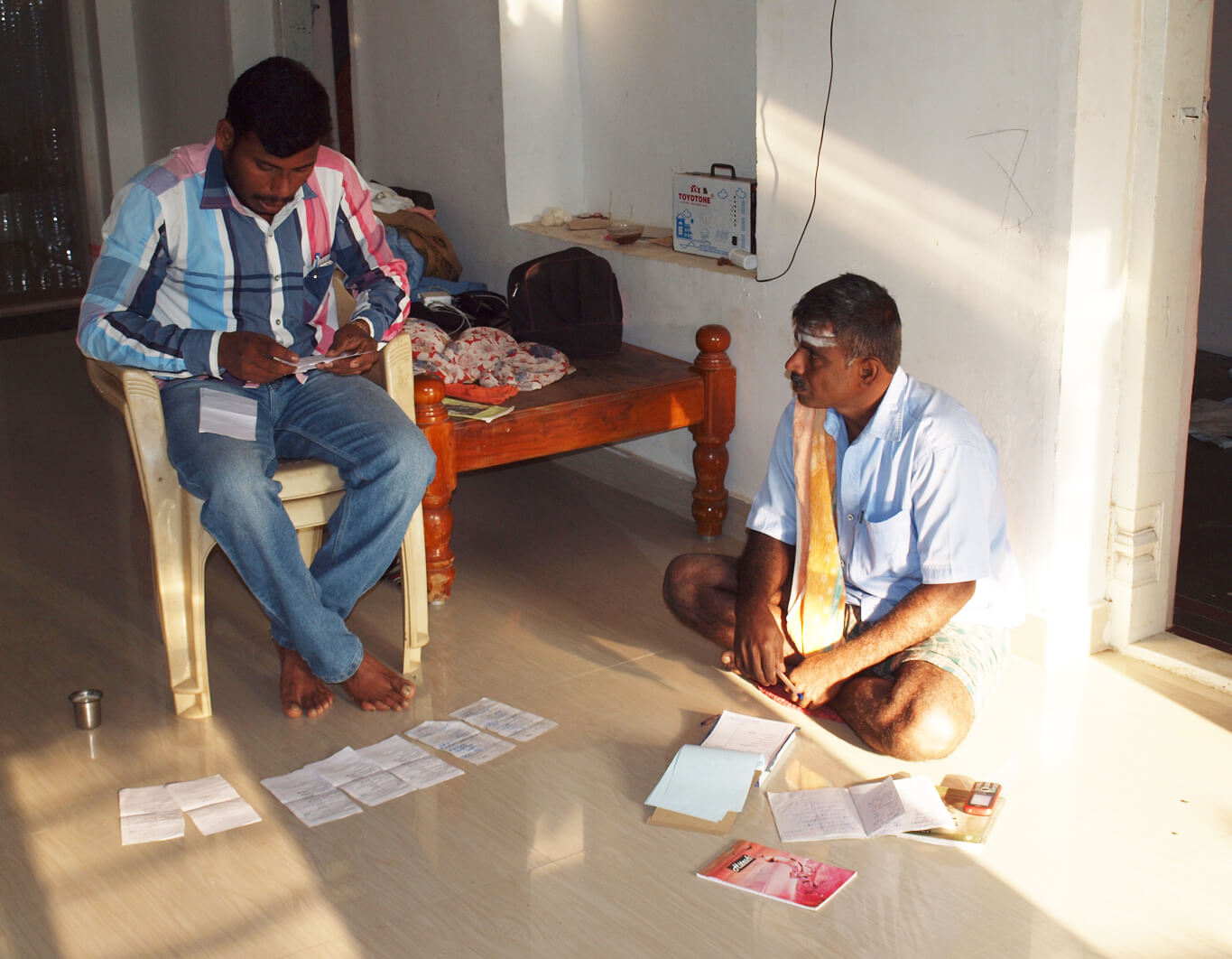
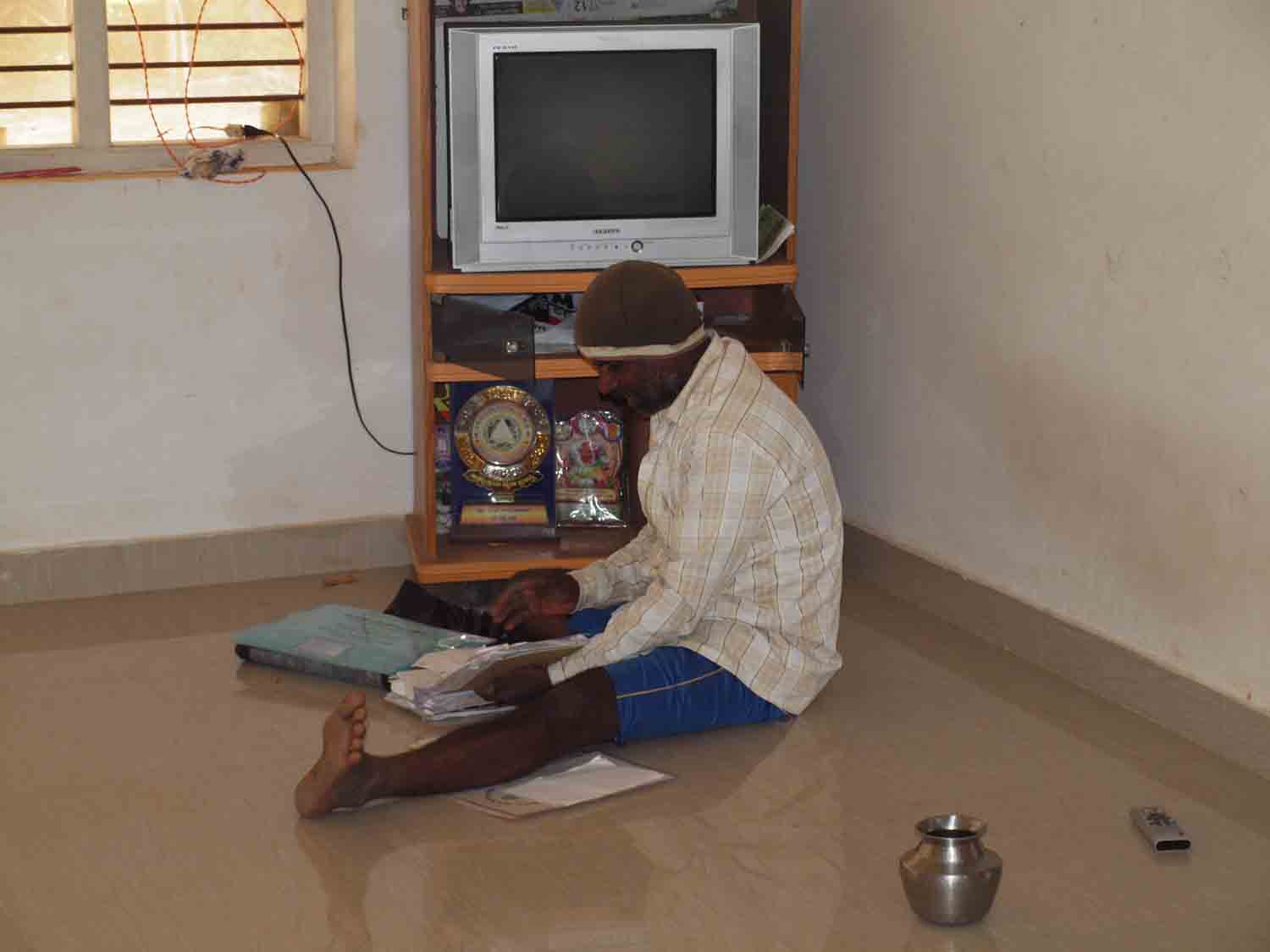
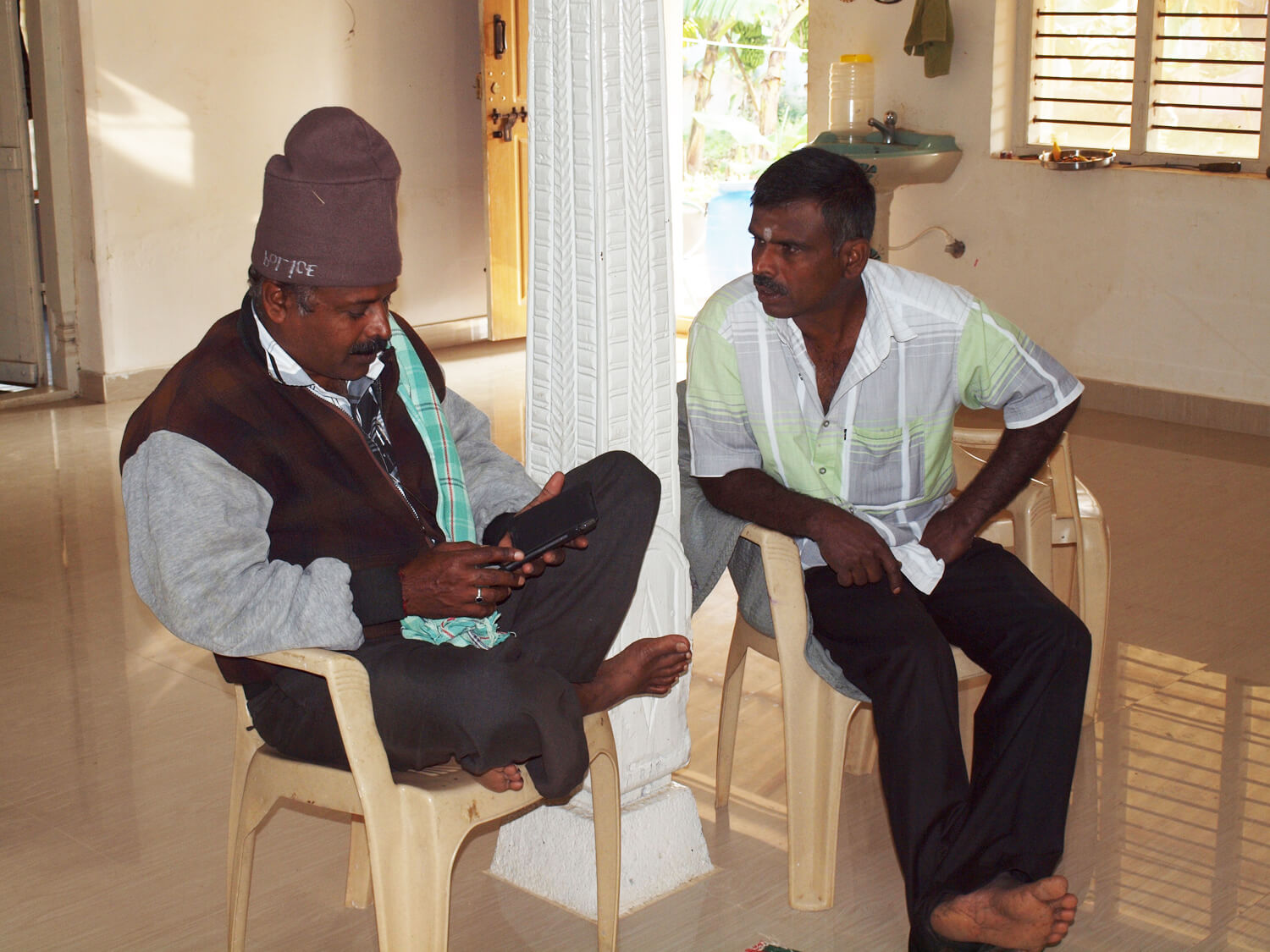
It cannot continue this way. The brothers discuss and share ideas about what they should do next. A commerce on the main road between Bengalore and Mysore might be the only solution.
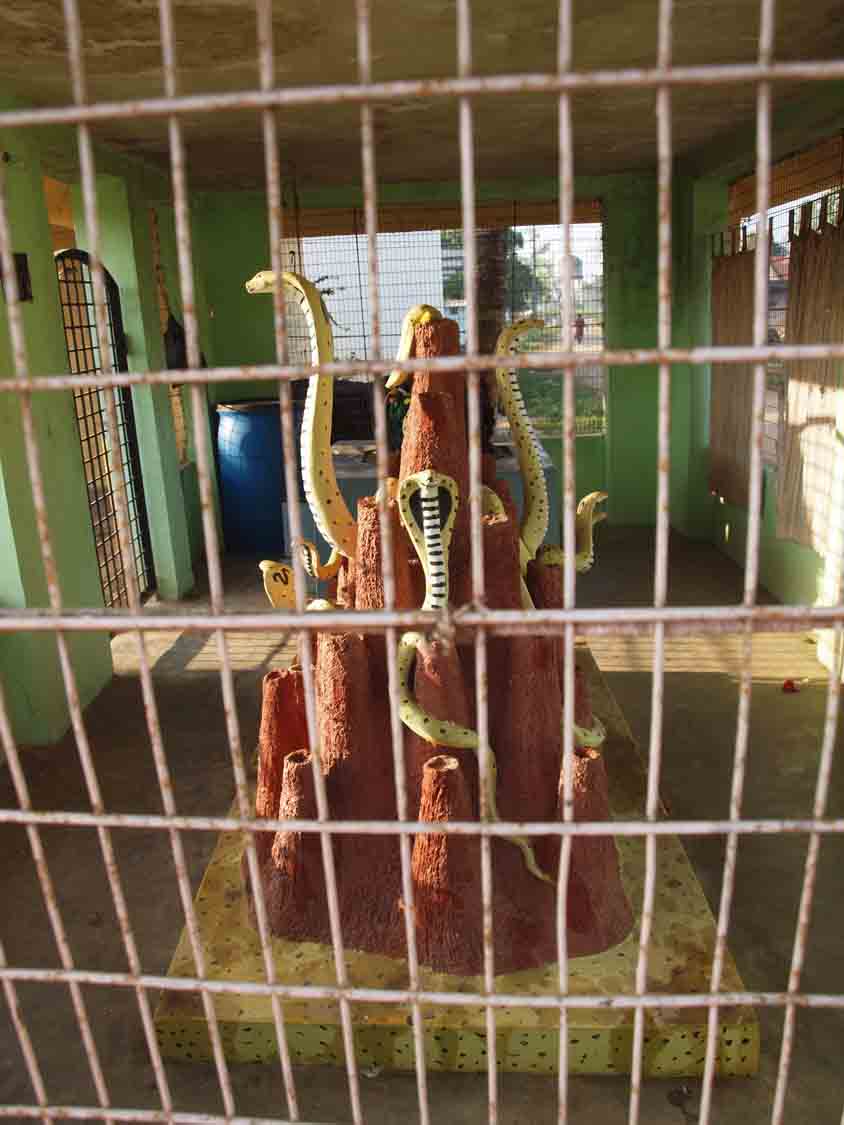
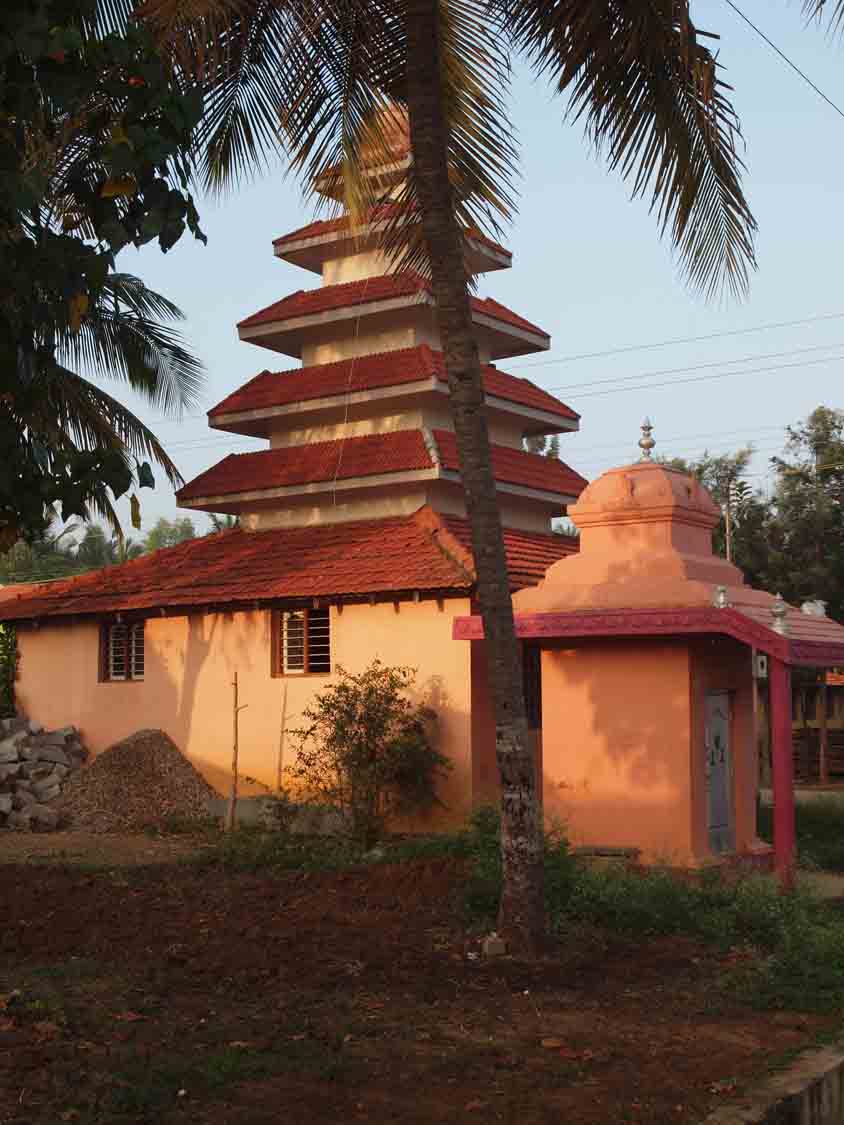
In exchange for paying for the village ashram, this is where the Shekar brothers will be buried.

